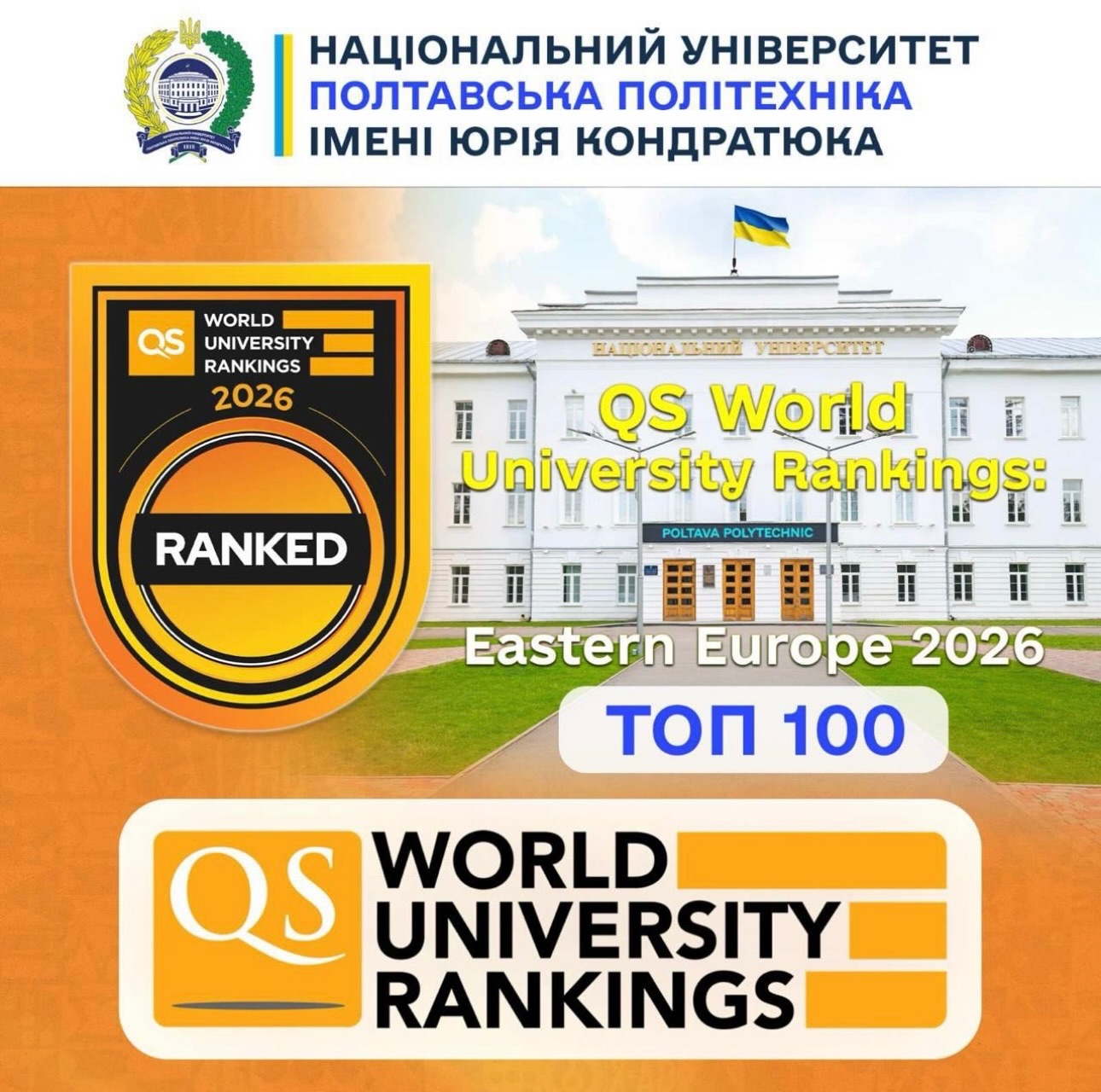Hectic international educational intensive took place online on February 21-25, 2022 with the support of the Breakthrough Foundation, Kids in Action (GR), Madiba (IT), Nectarus (LT), TiPovej! (SI), Youthopolis (RO), Think Forward (UK) in Vilnius, Lithuania. 30 scientists and youth workers from more than 20 countries studied and improved practical skills, which, according to scientists, will be needed by young people in 5-10 years. Listeners discussed in detail and analyzed ways to improve these skills in the educational process and in the activities of European youth organizations.
In this project, the National University “Yuri Kondratyuk Poltava Polytechnic” was represented by a multiple participant of youth exchanges under the Erasmus+ program, Candidate of Philological Sciences, Associate Professor of the Department of Germanic Philology and Translation Anna Pavelieva.
Training “Future Skills Now” was held in a mixed format: 5-hour practical Zoom sessions were combined with homework on the MOOC platform “Cities of Learning”.
“Cities of Learning” platform is a popular educational ecosystem through which any individual and organization can offer learning opportunities (both offline and online or digital) and issue Open Badges – digital certificates confirming mastery of certain courses/educational programs as well as acquisition of special skills. Open Badges is recognized by many organizations around the world and can be included in resumes and CVs. With the help of the “Cities of Learning” platform, educational institutions and administrations, city and regional councils as well as other administrative institutions can create so-called educational hubs and educational projects for both locals and anyone interested. This form allows participants from all over the world to register for free and join participation in educational projects, courses and trainings.
























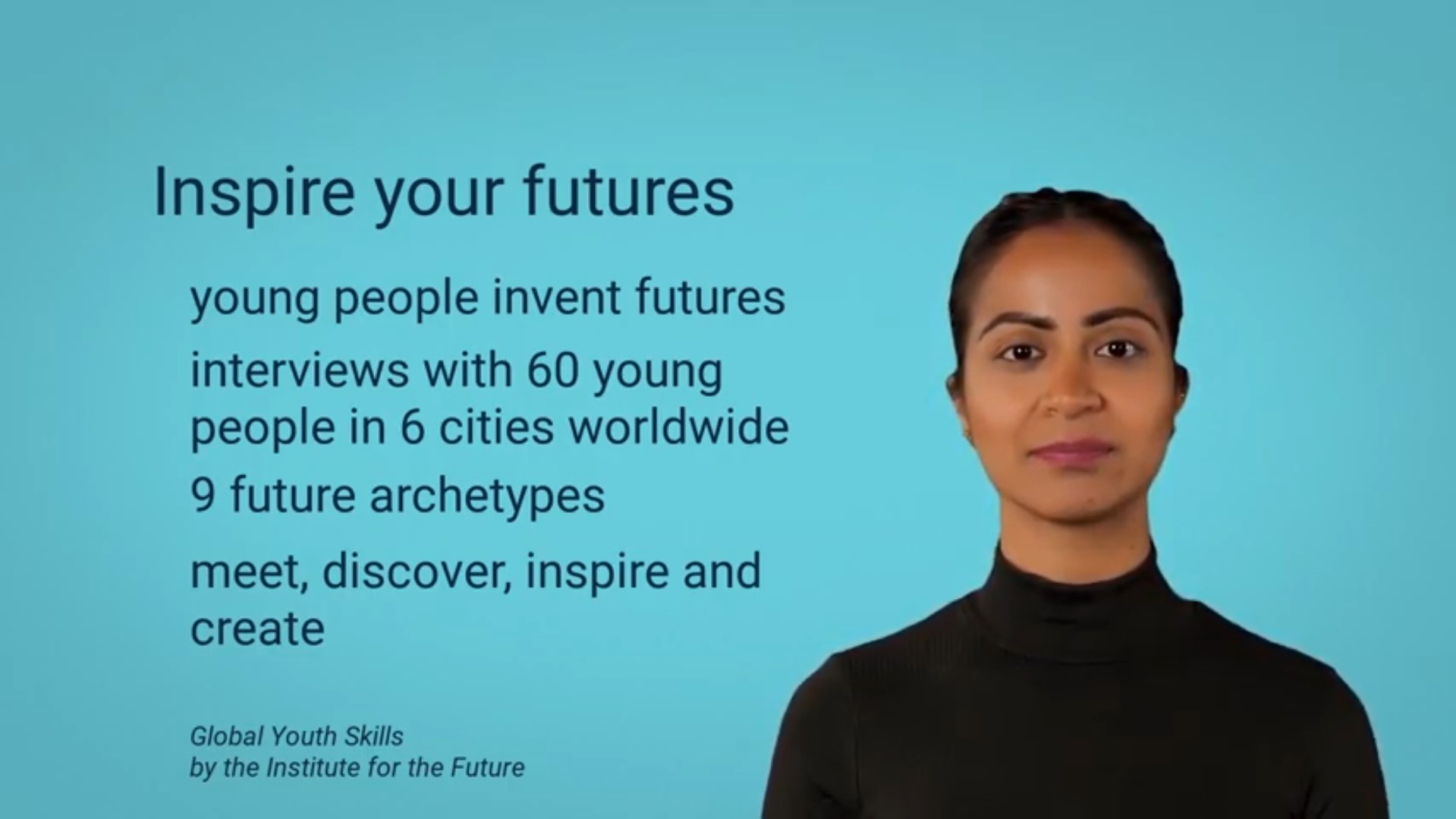
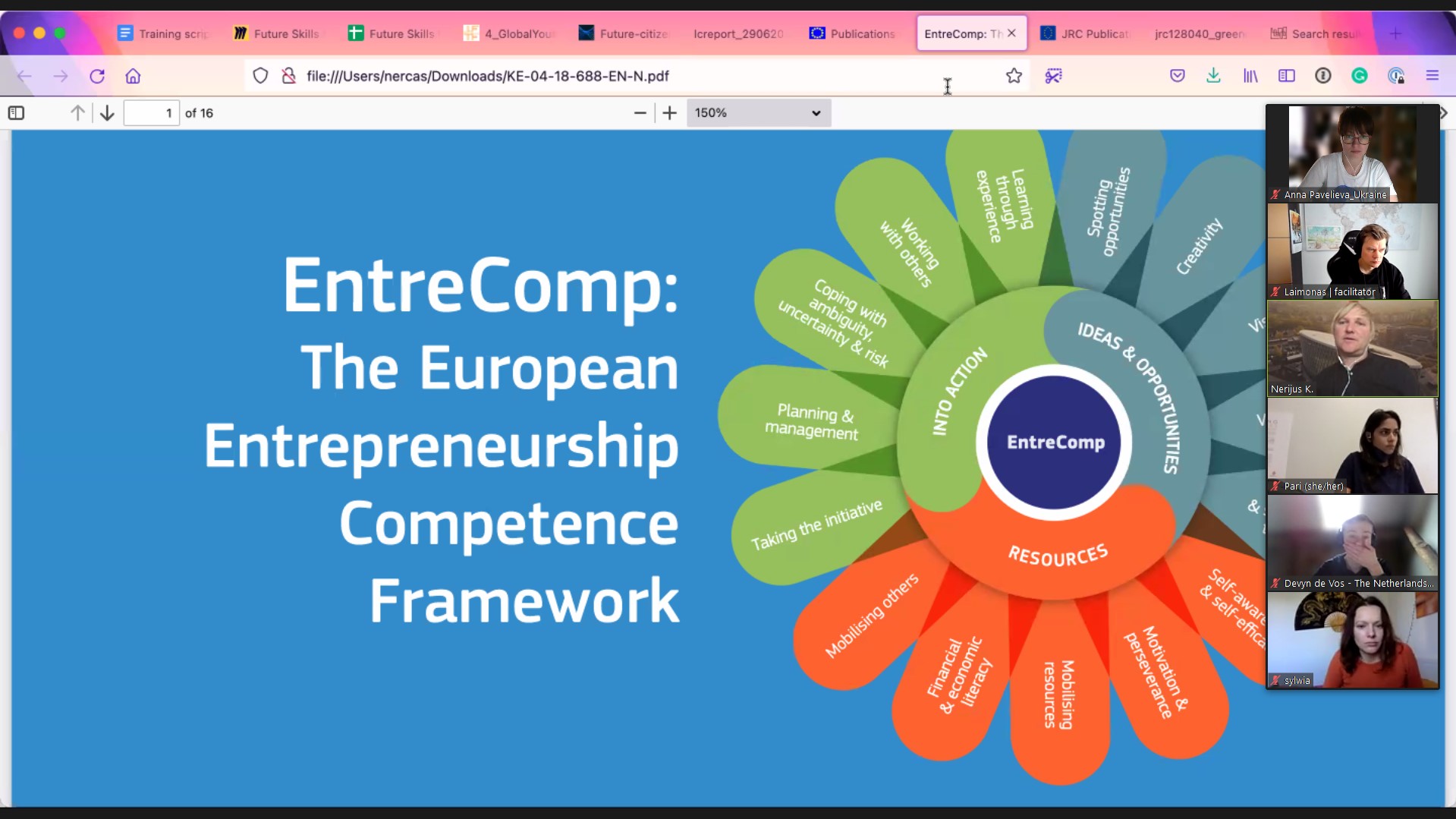
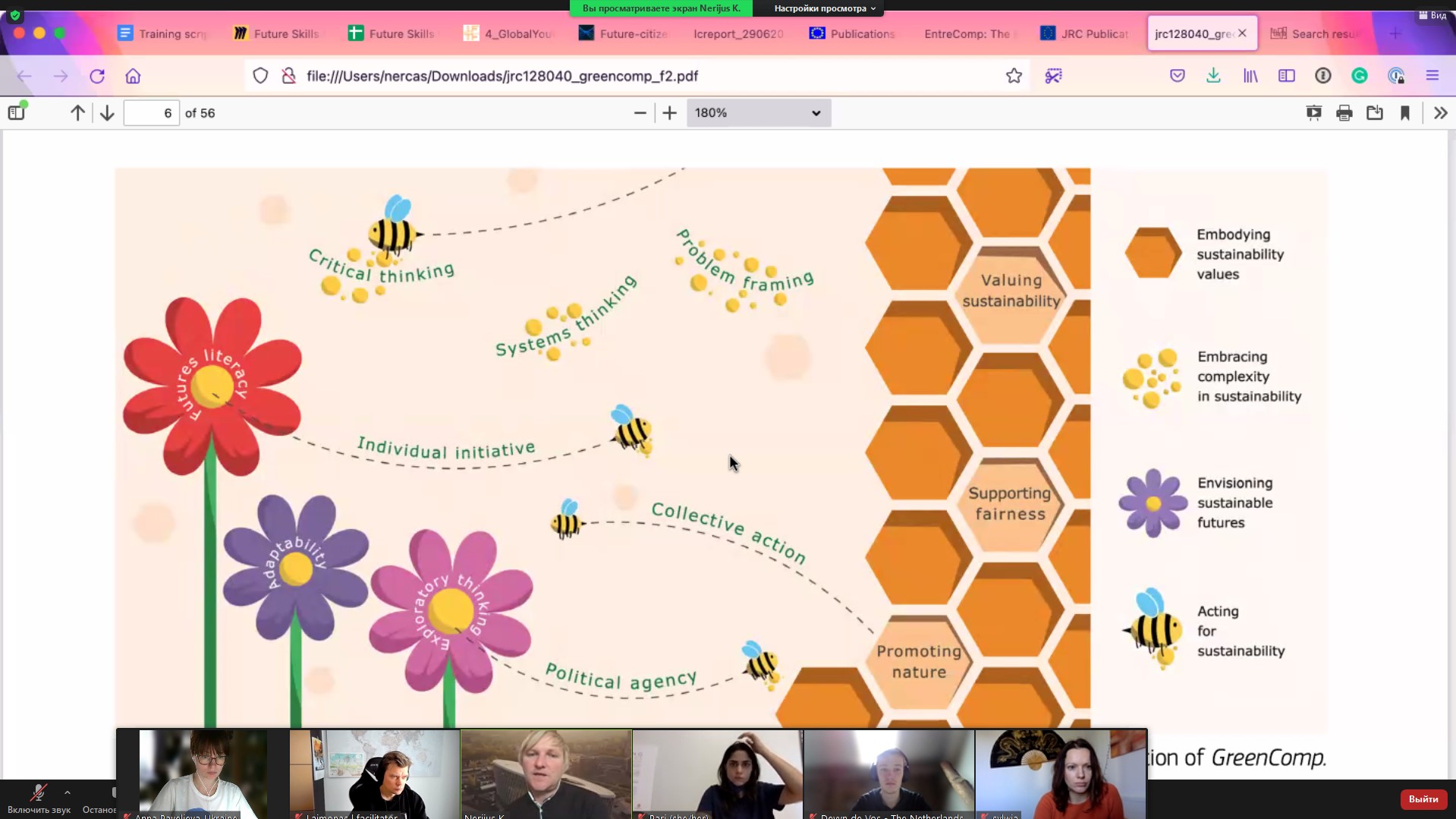
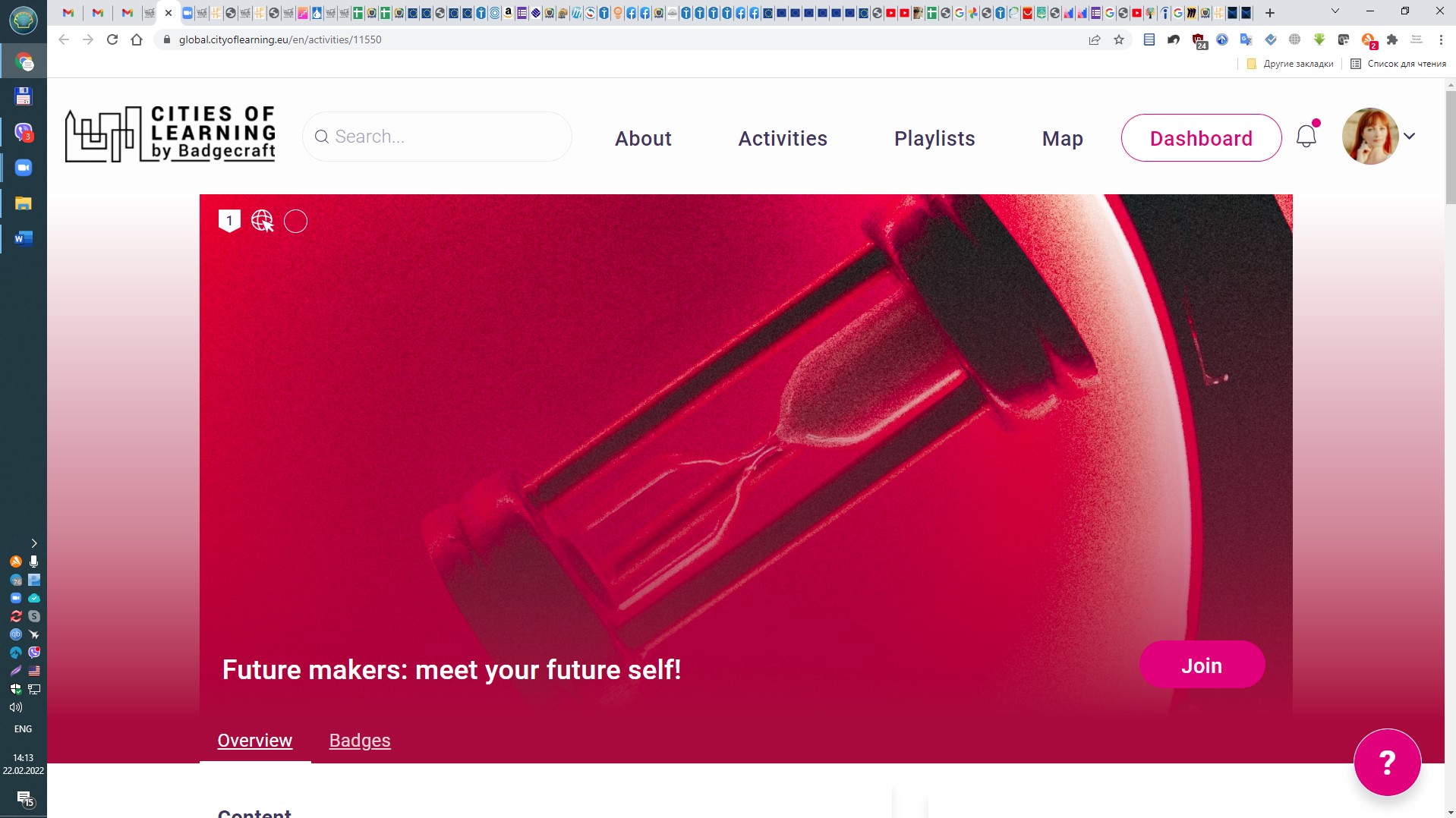
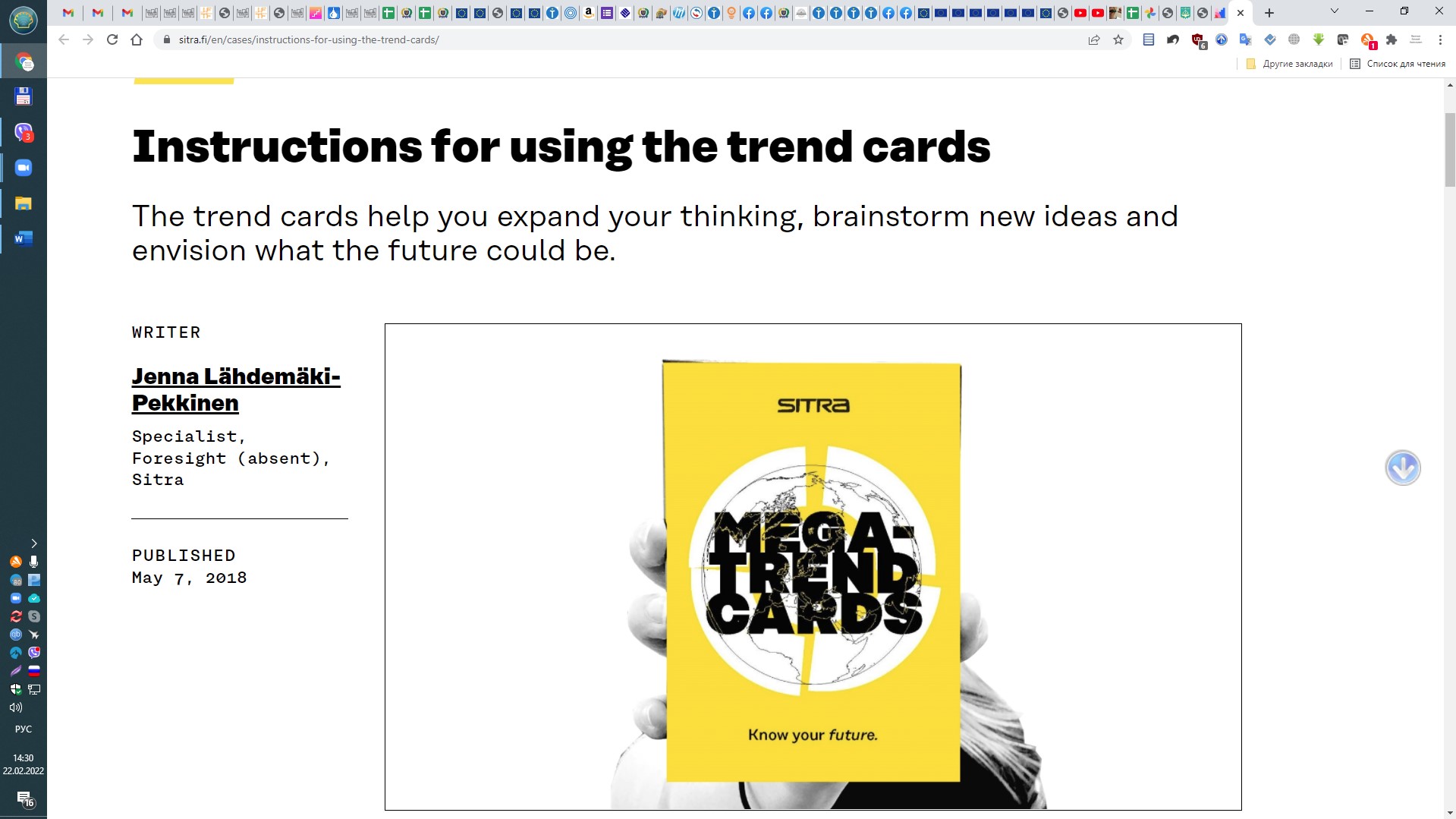
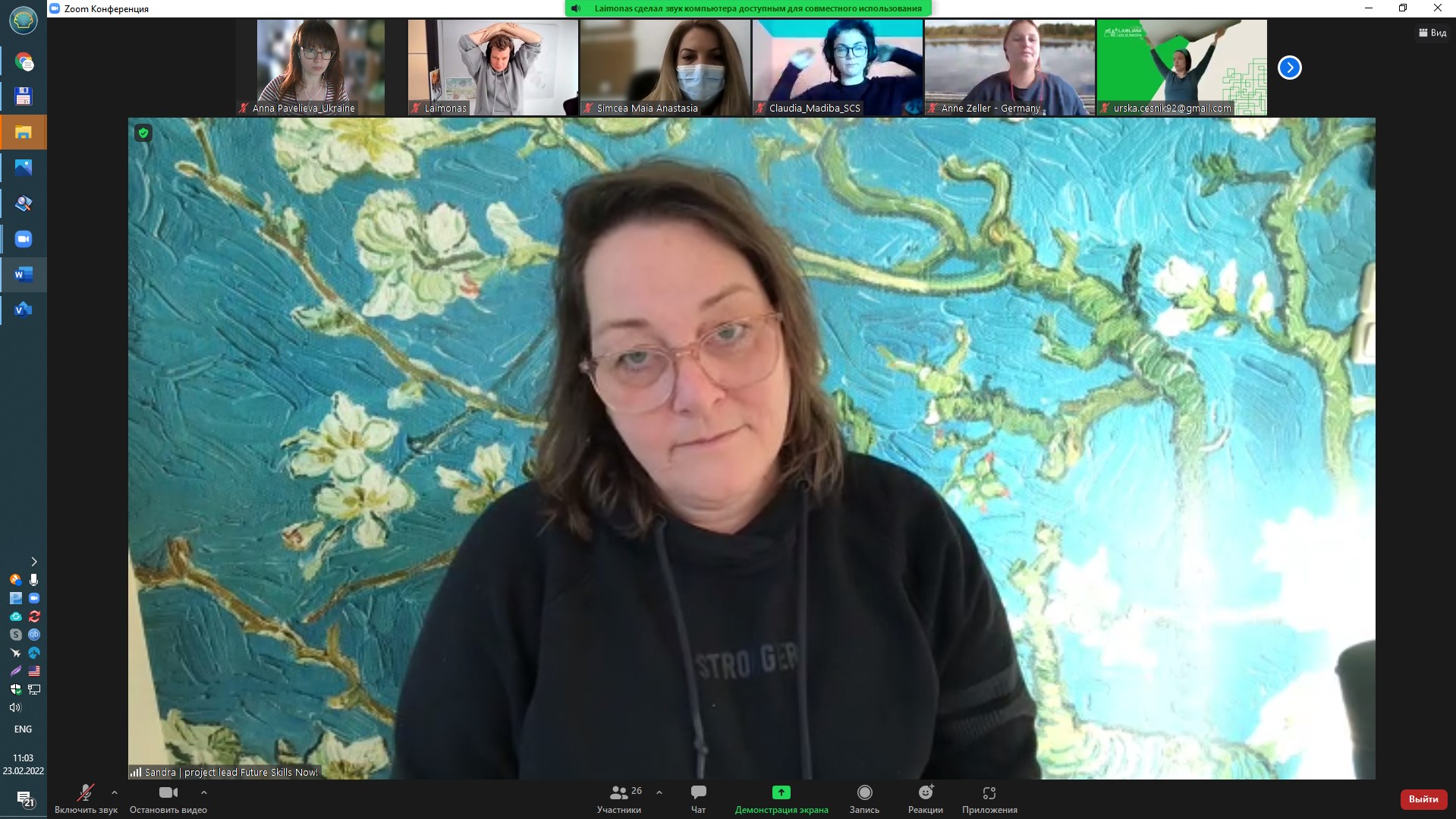
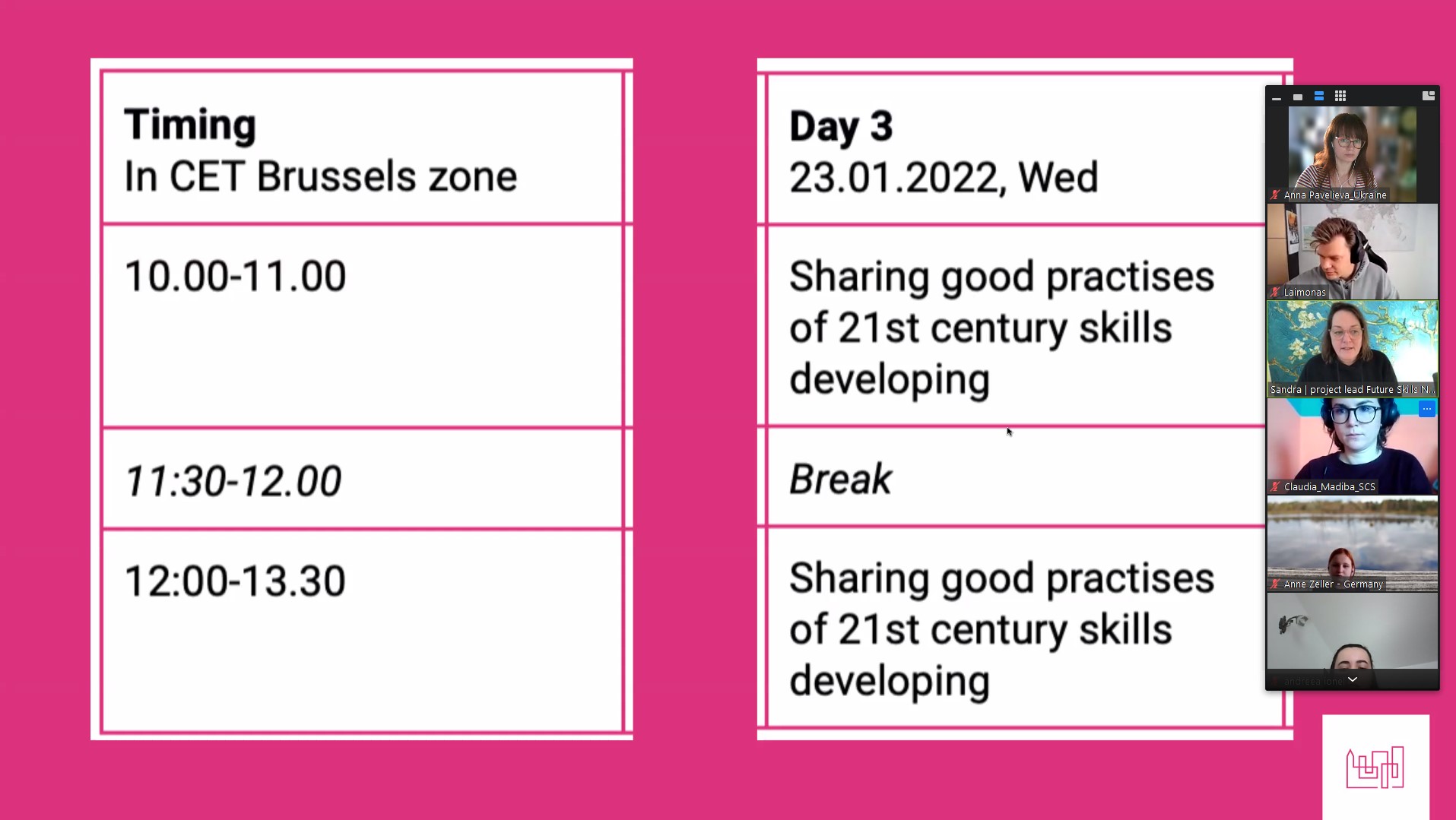
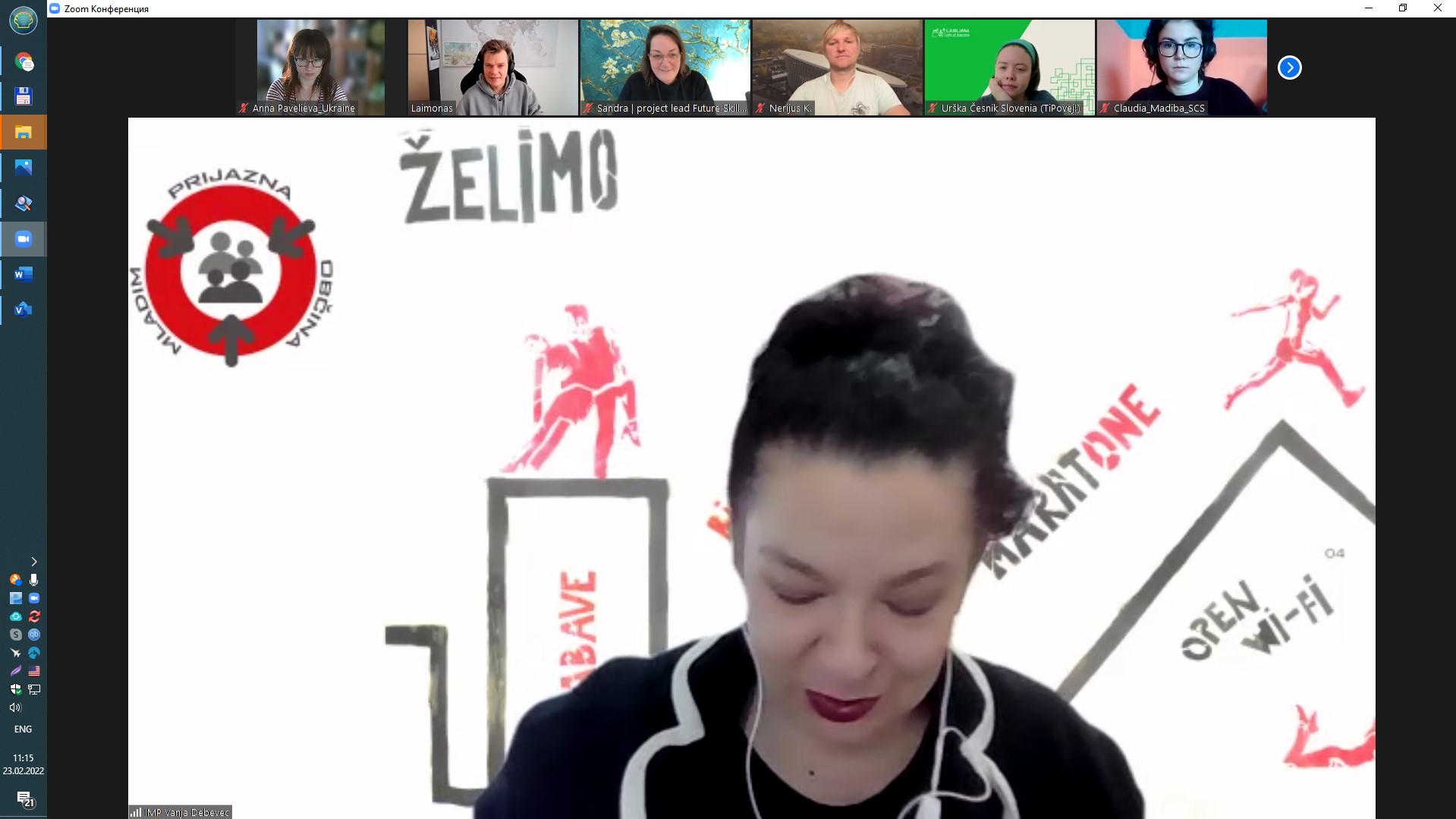


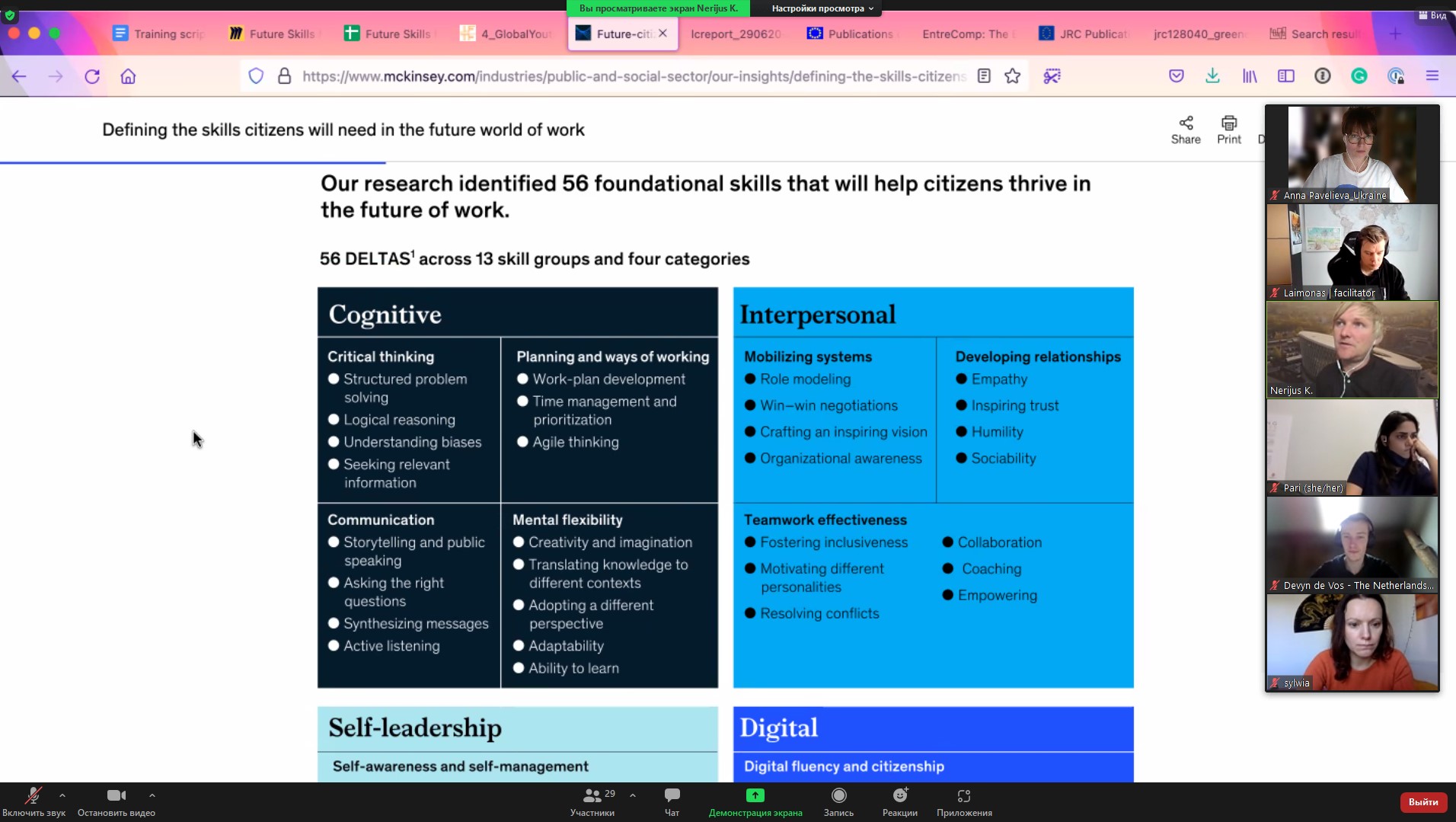
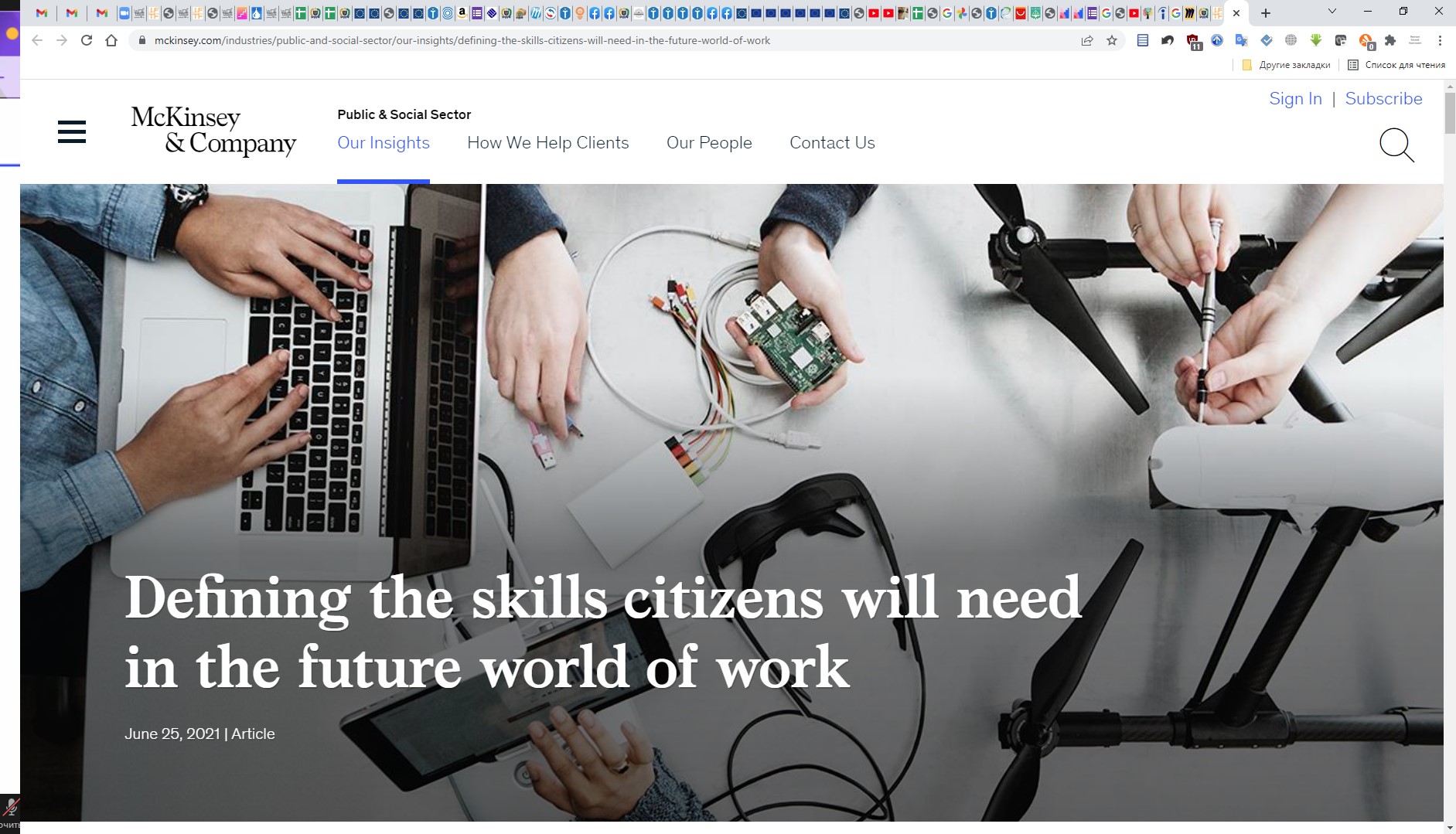
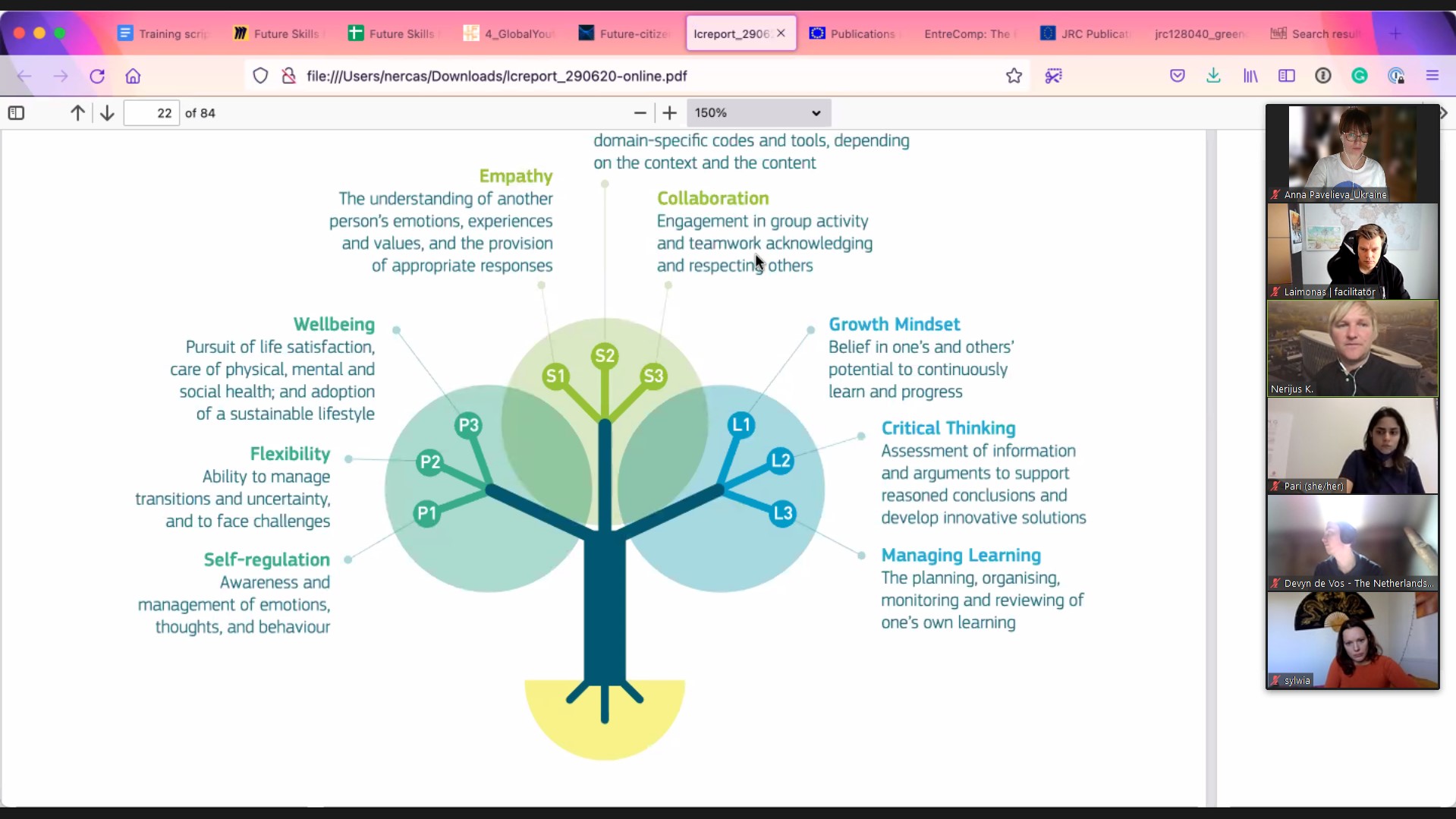
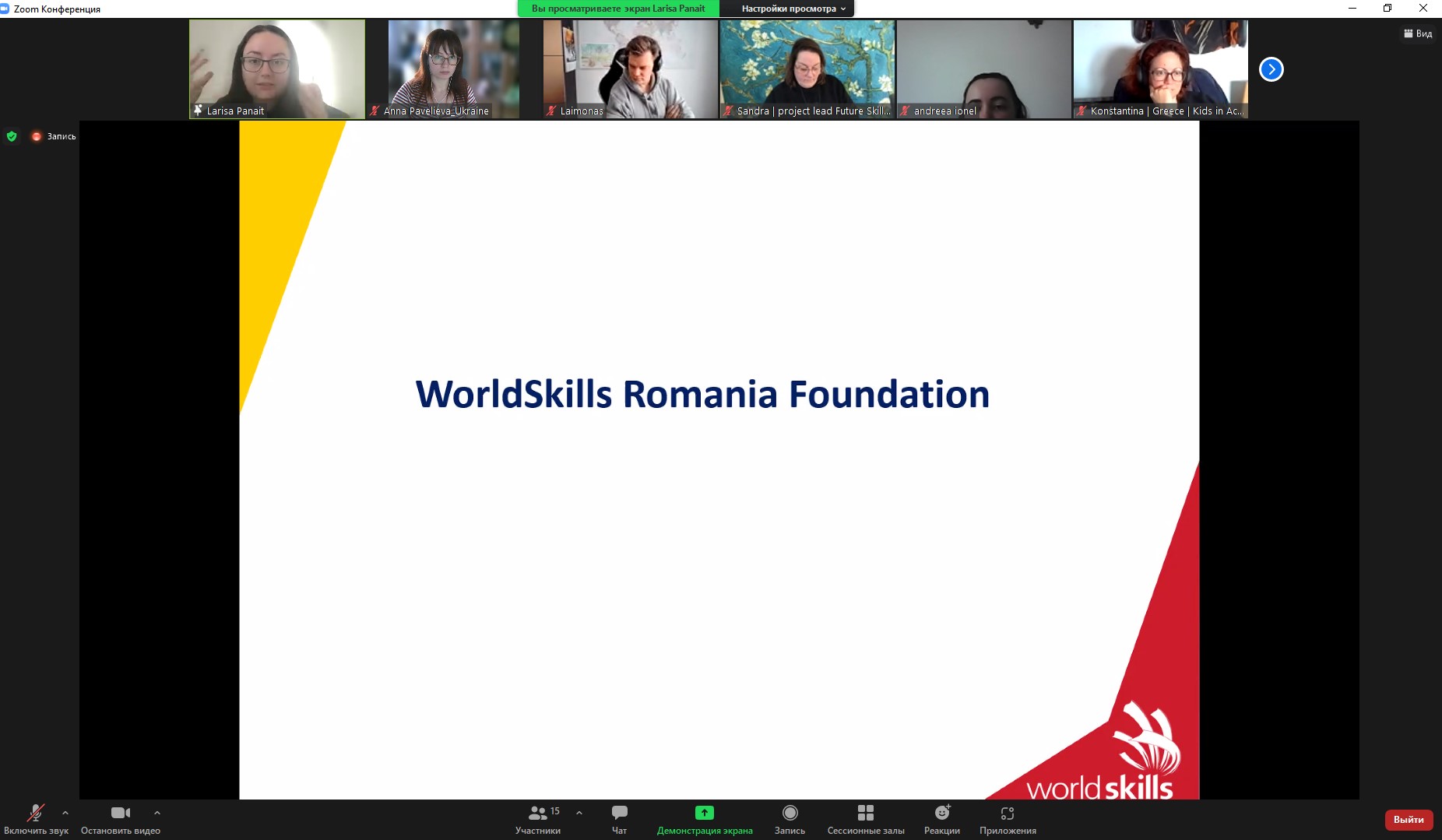

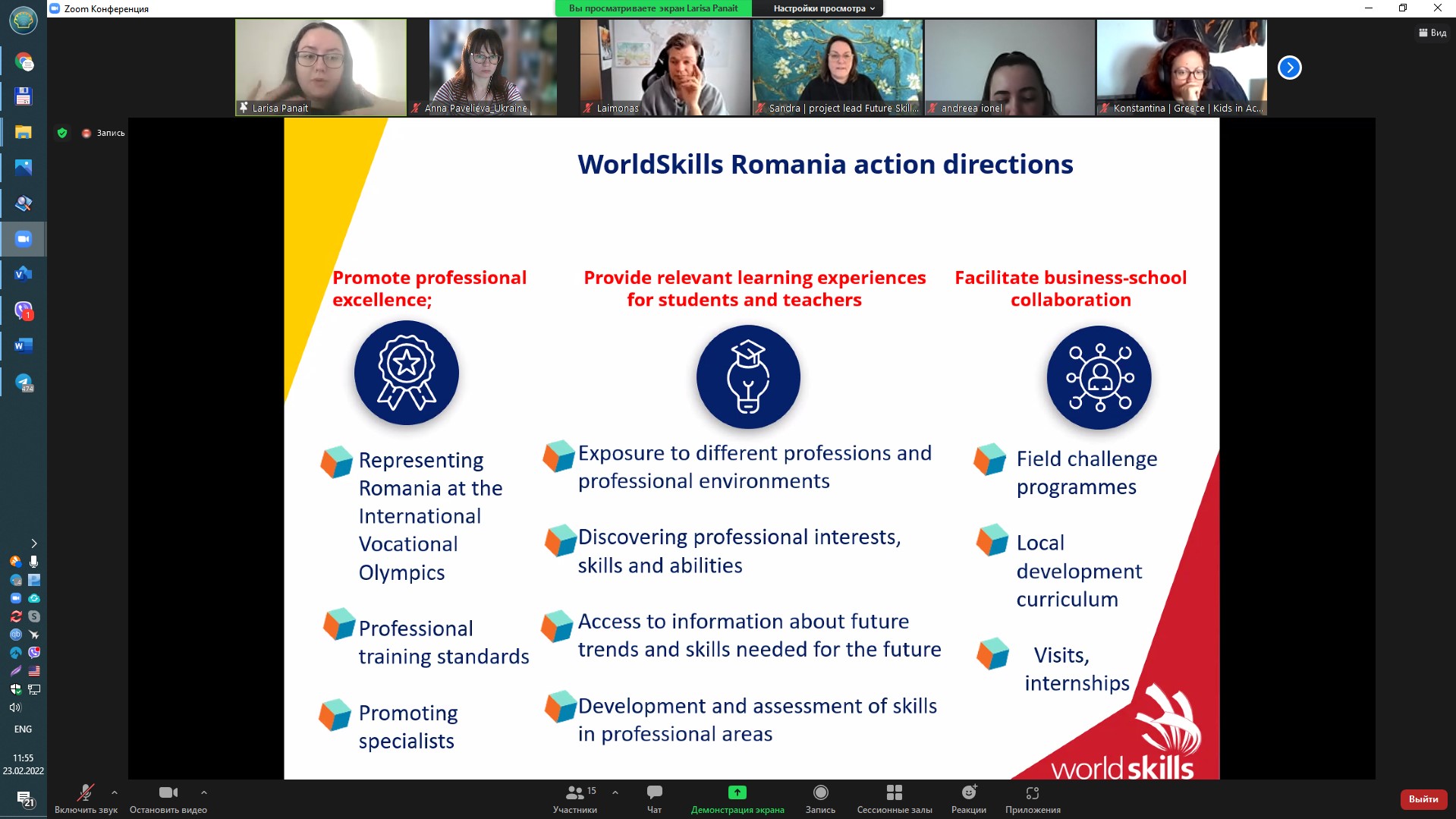

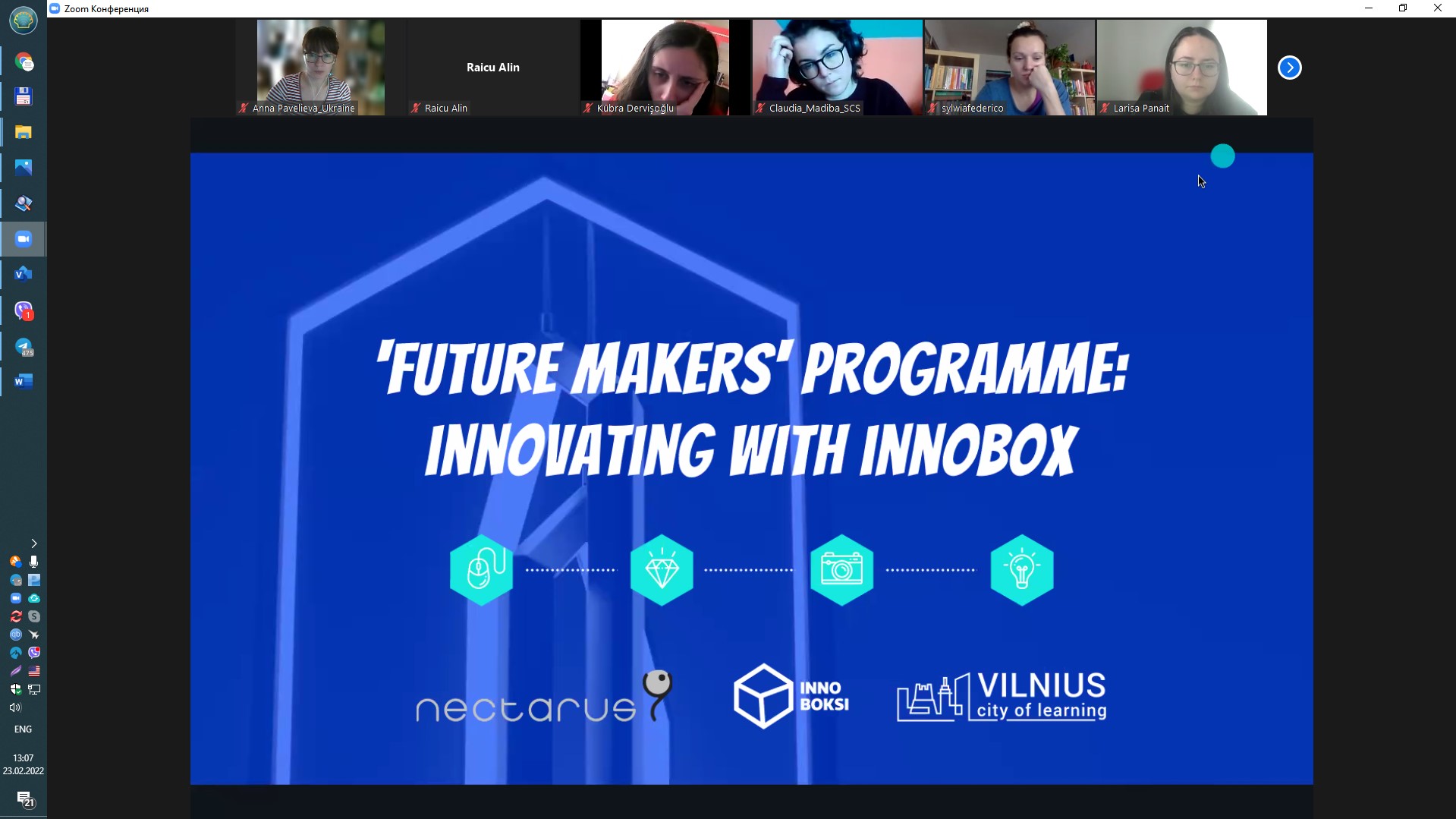
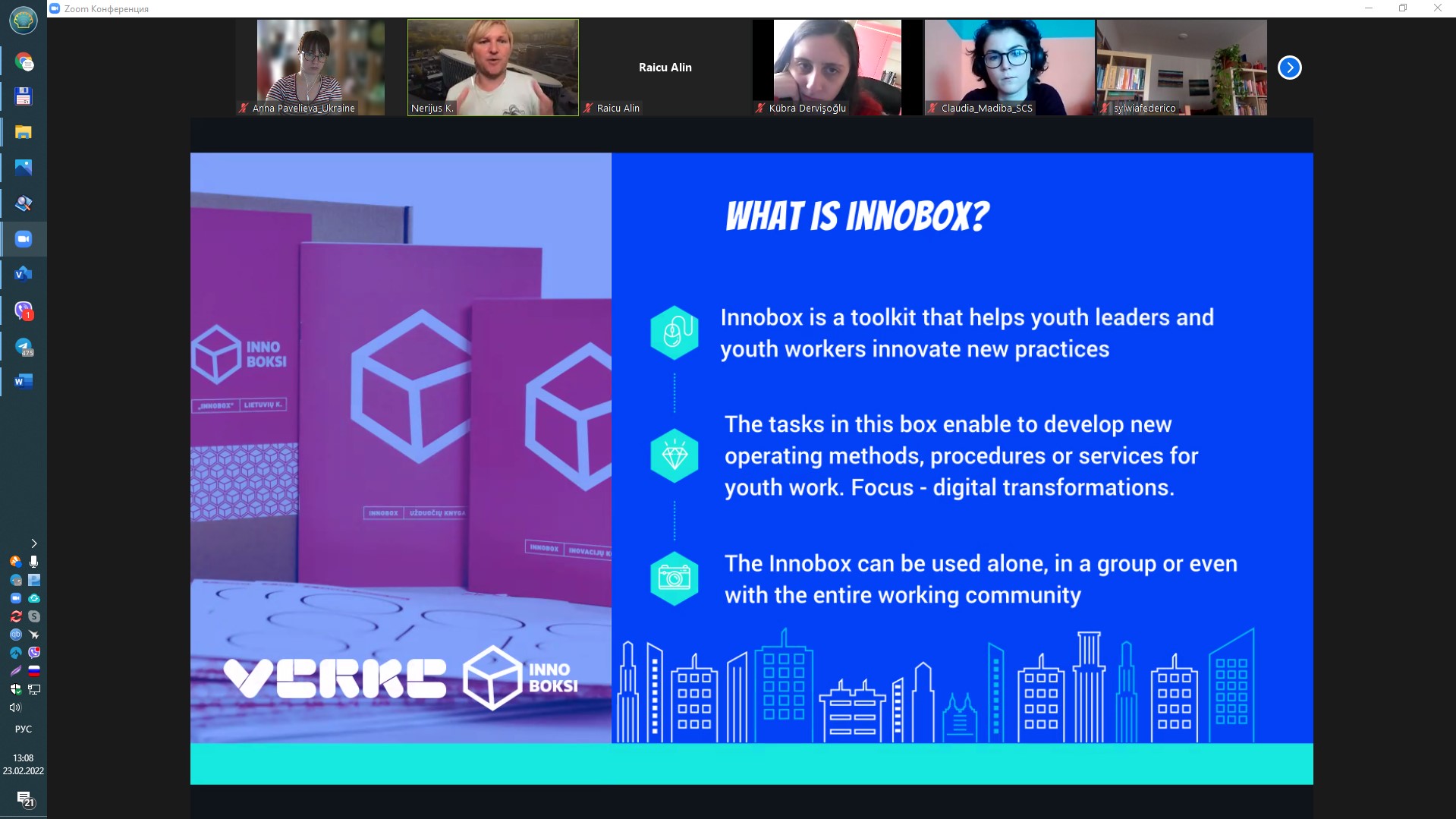
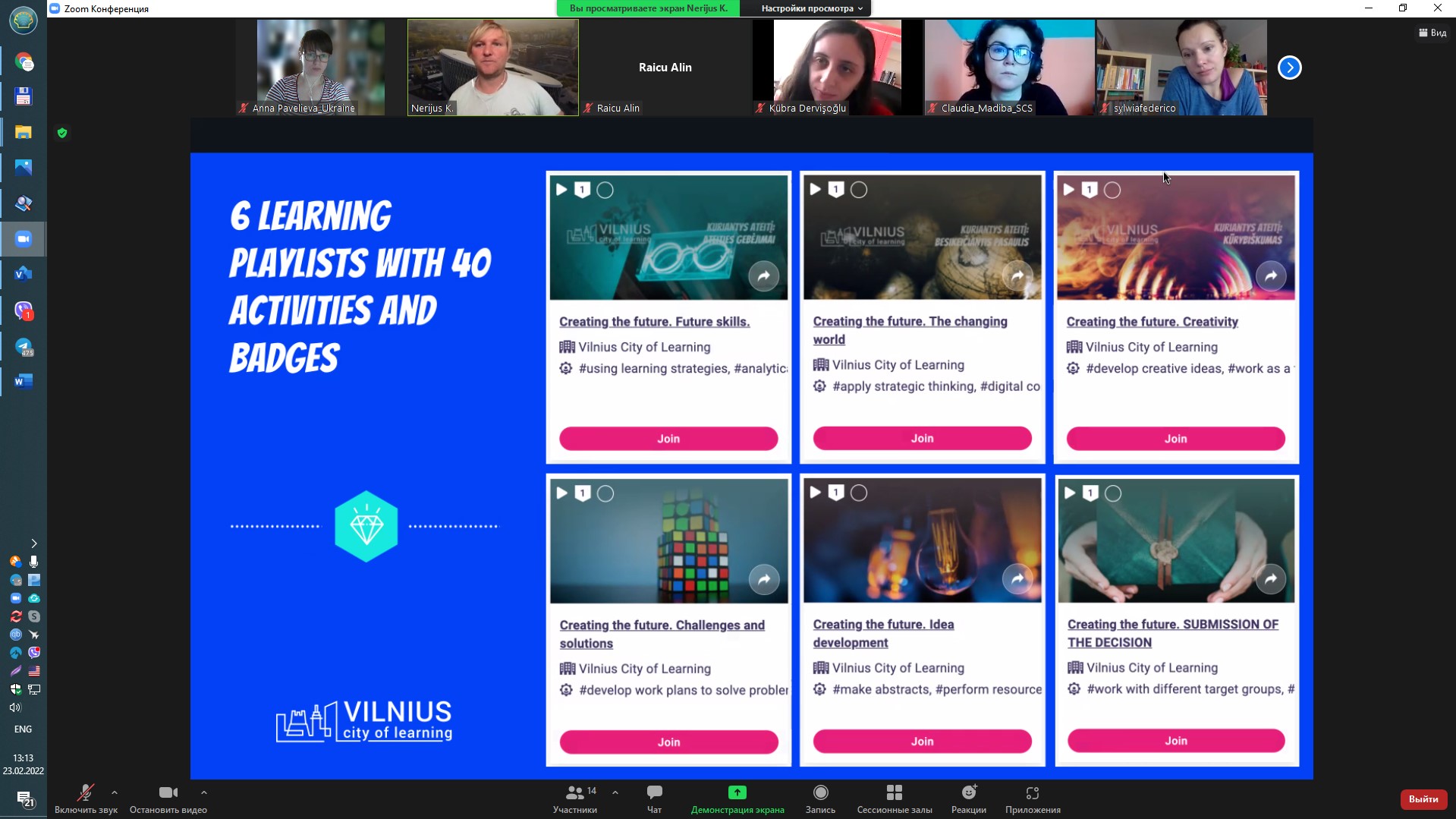

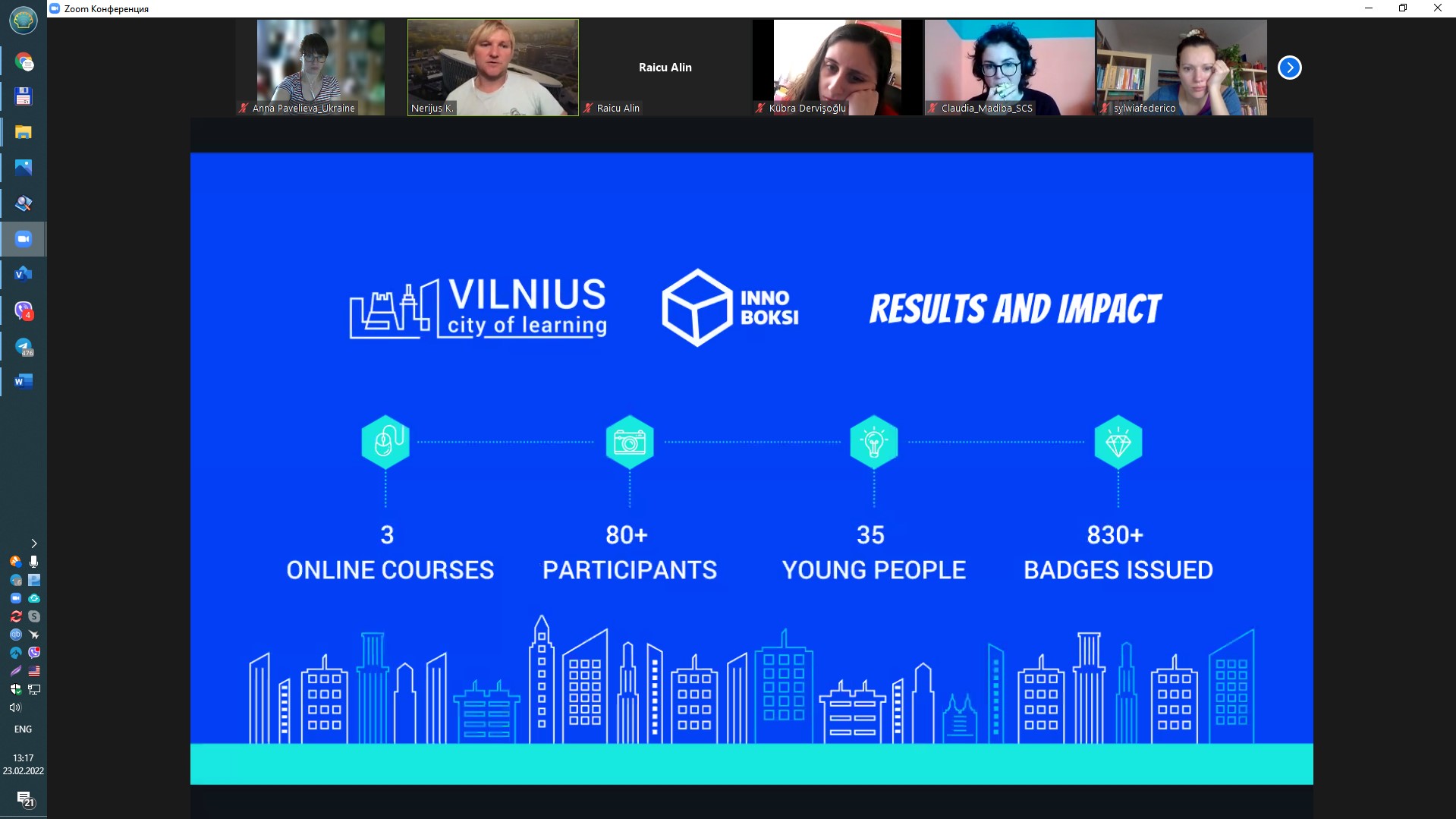
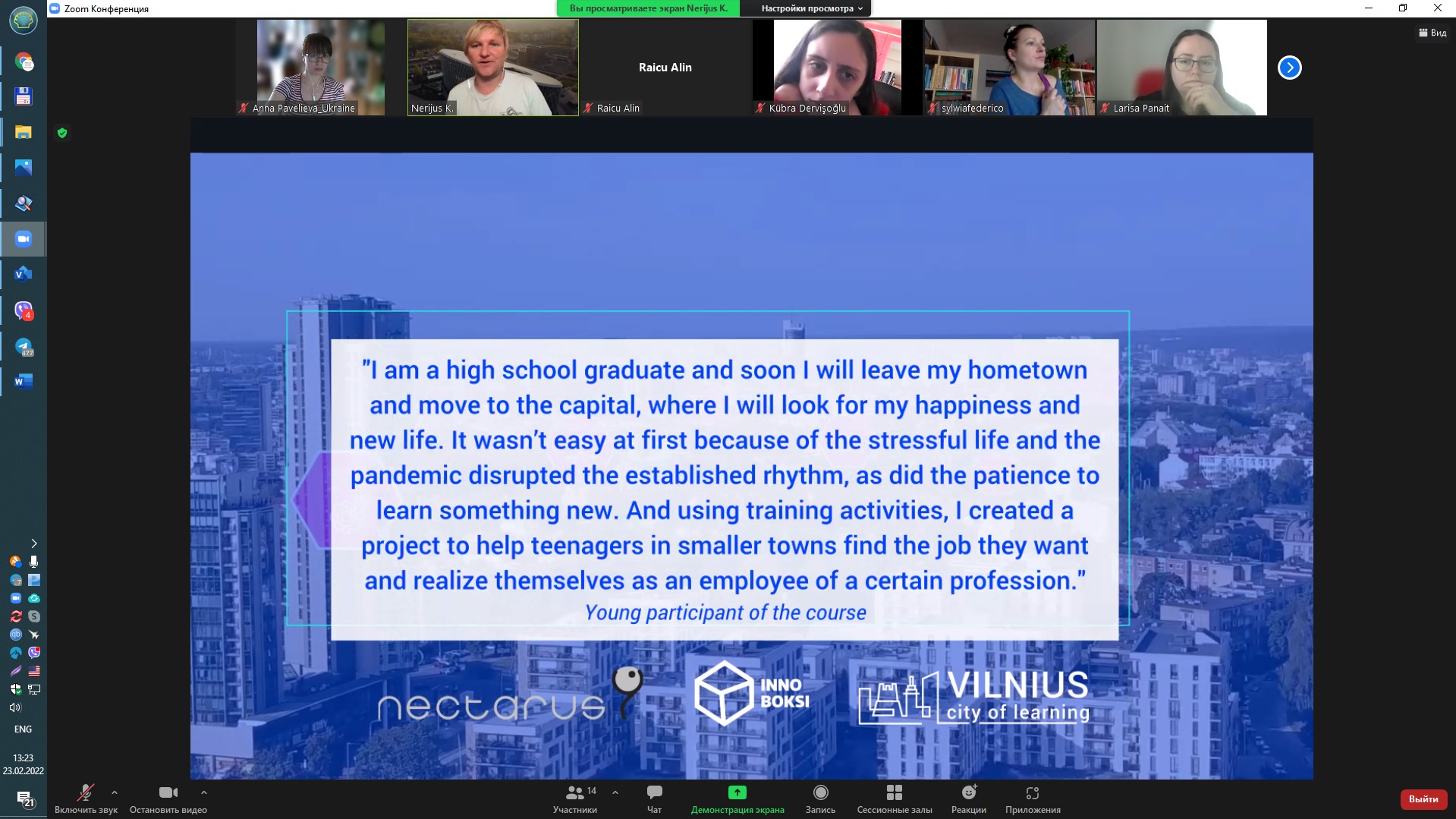

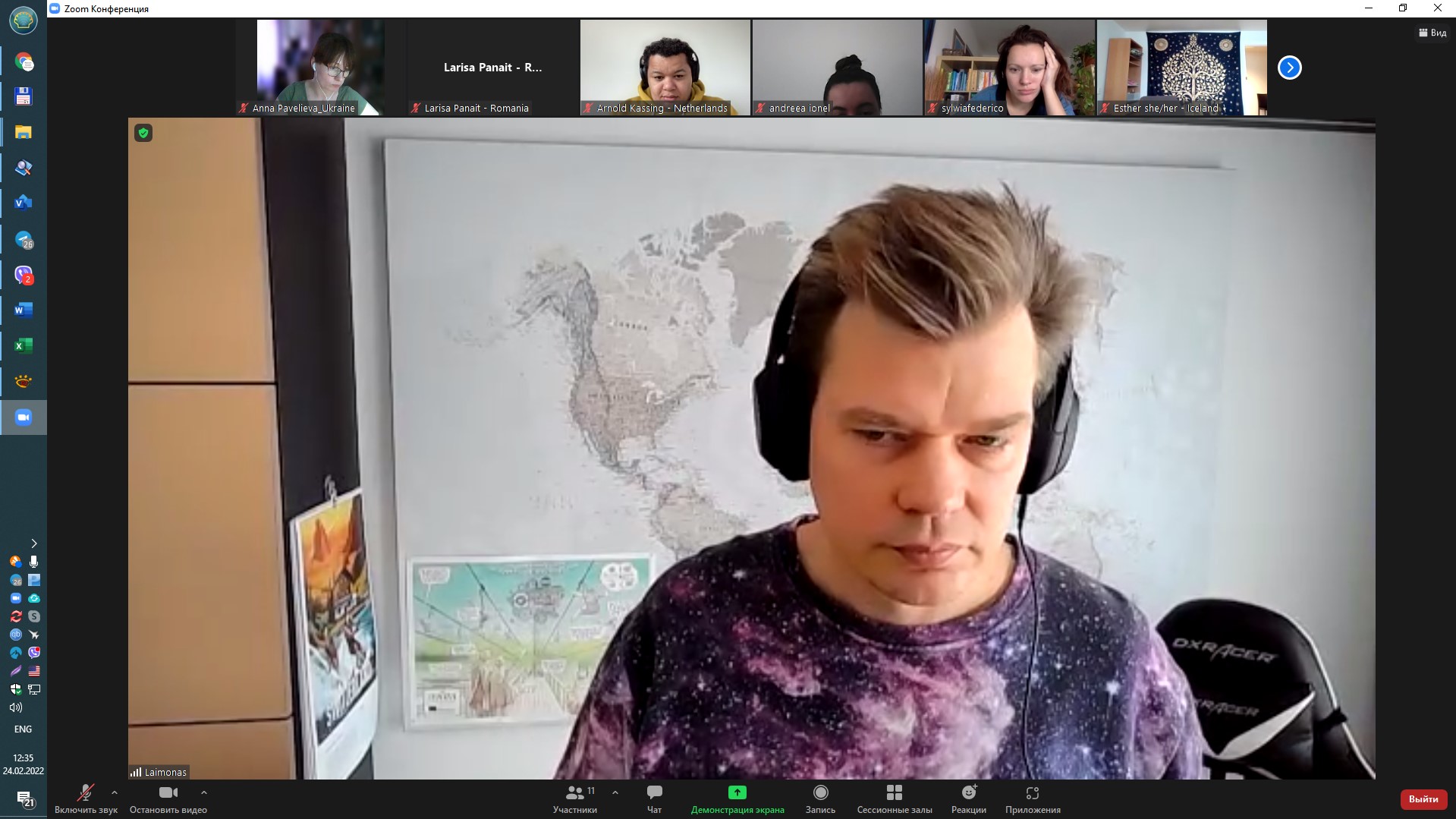
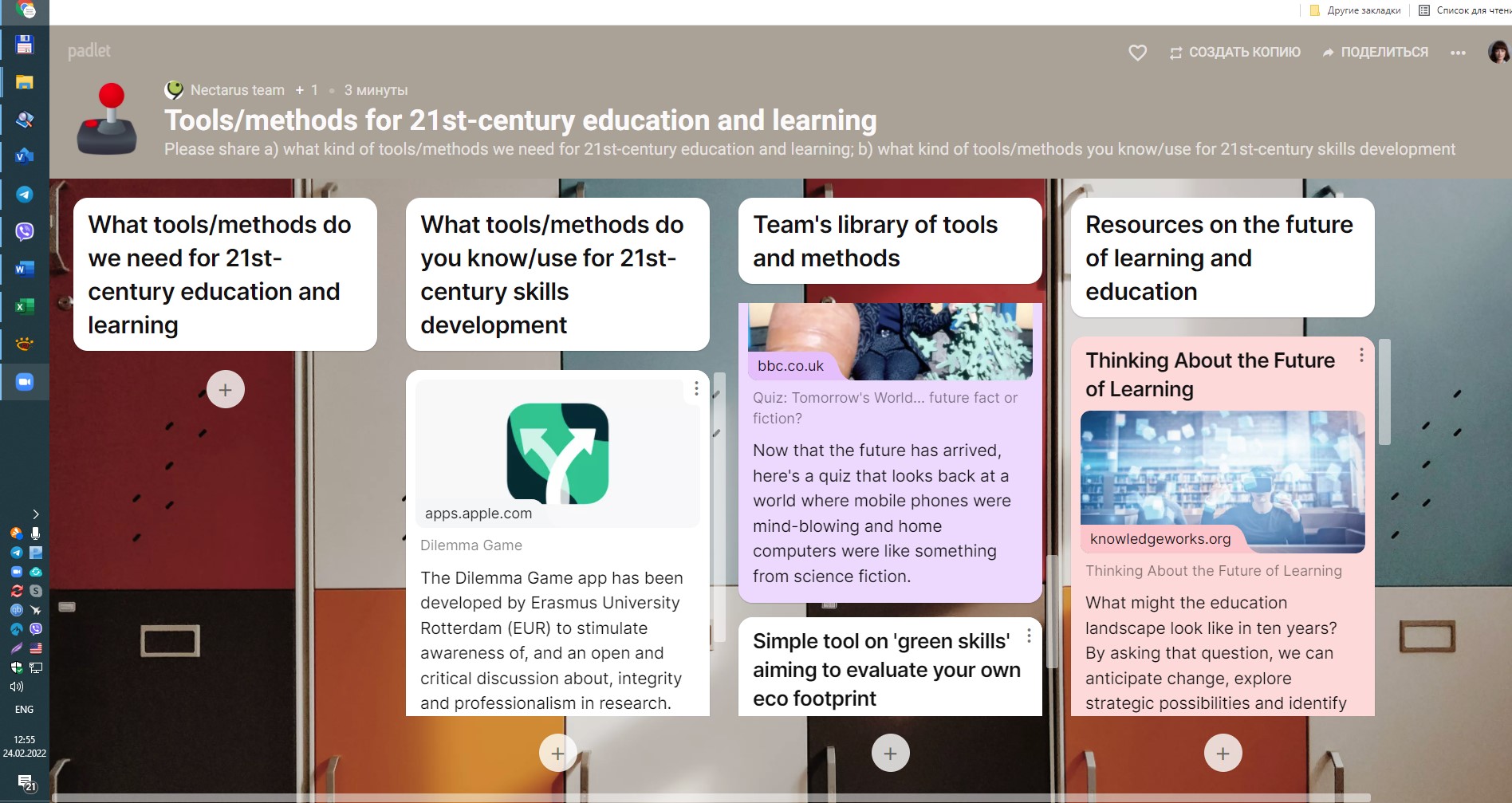
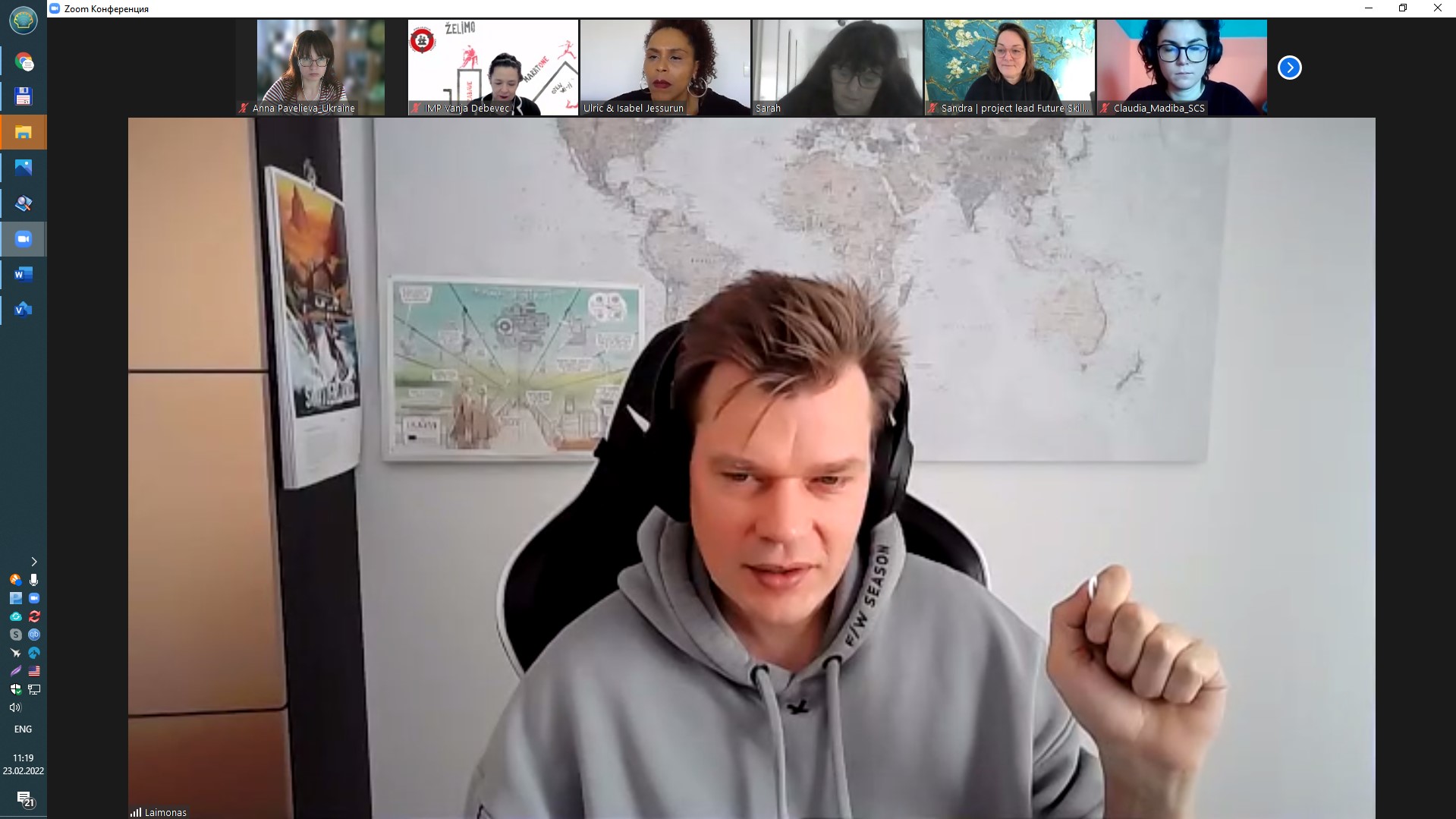
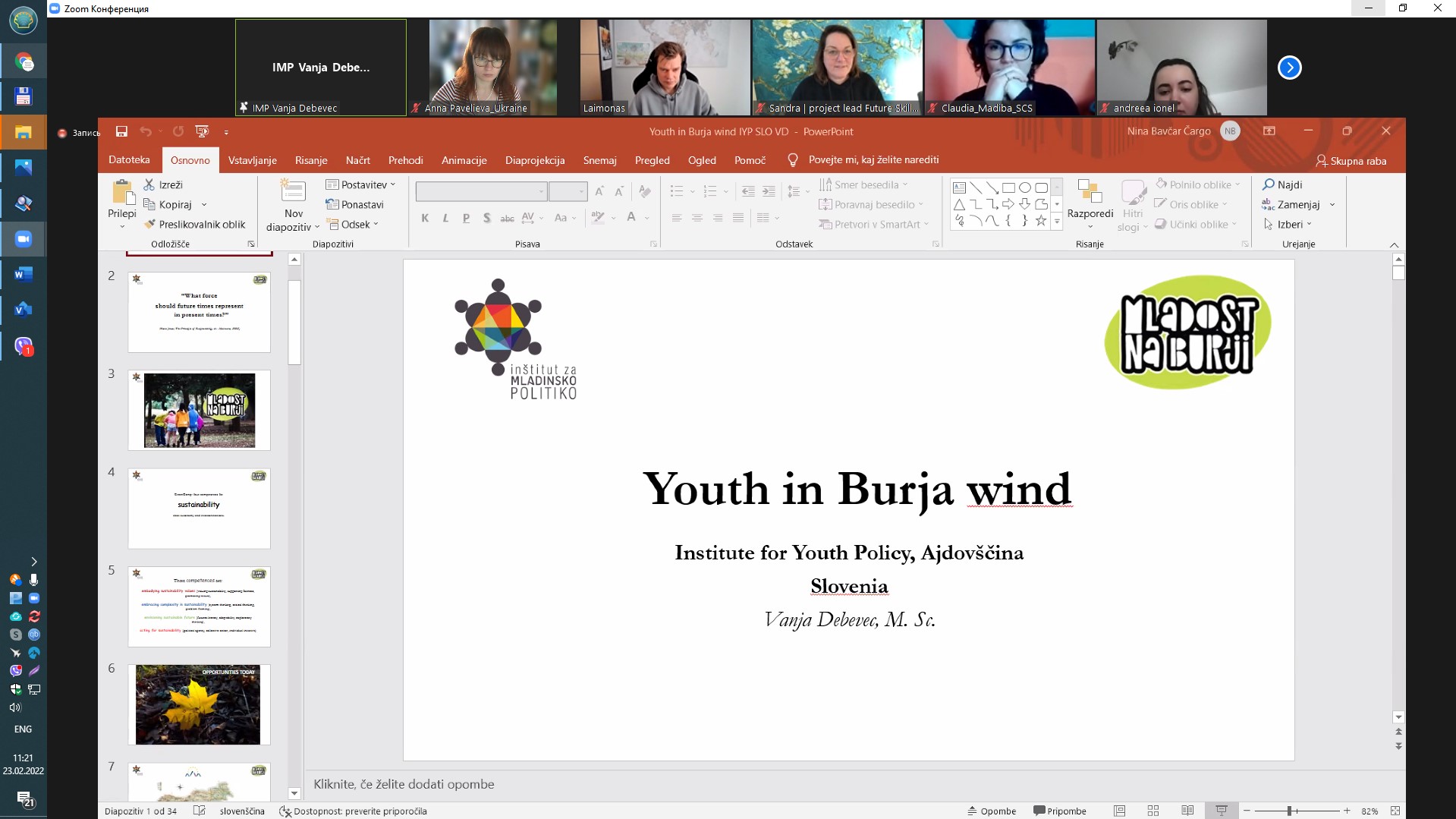

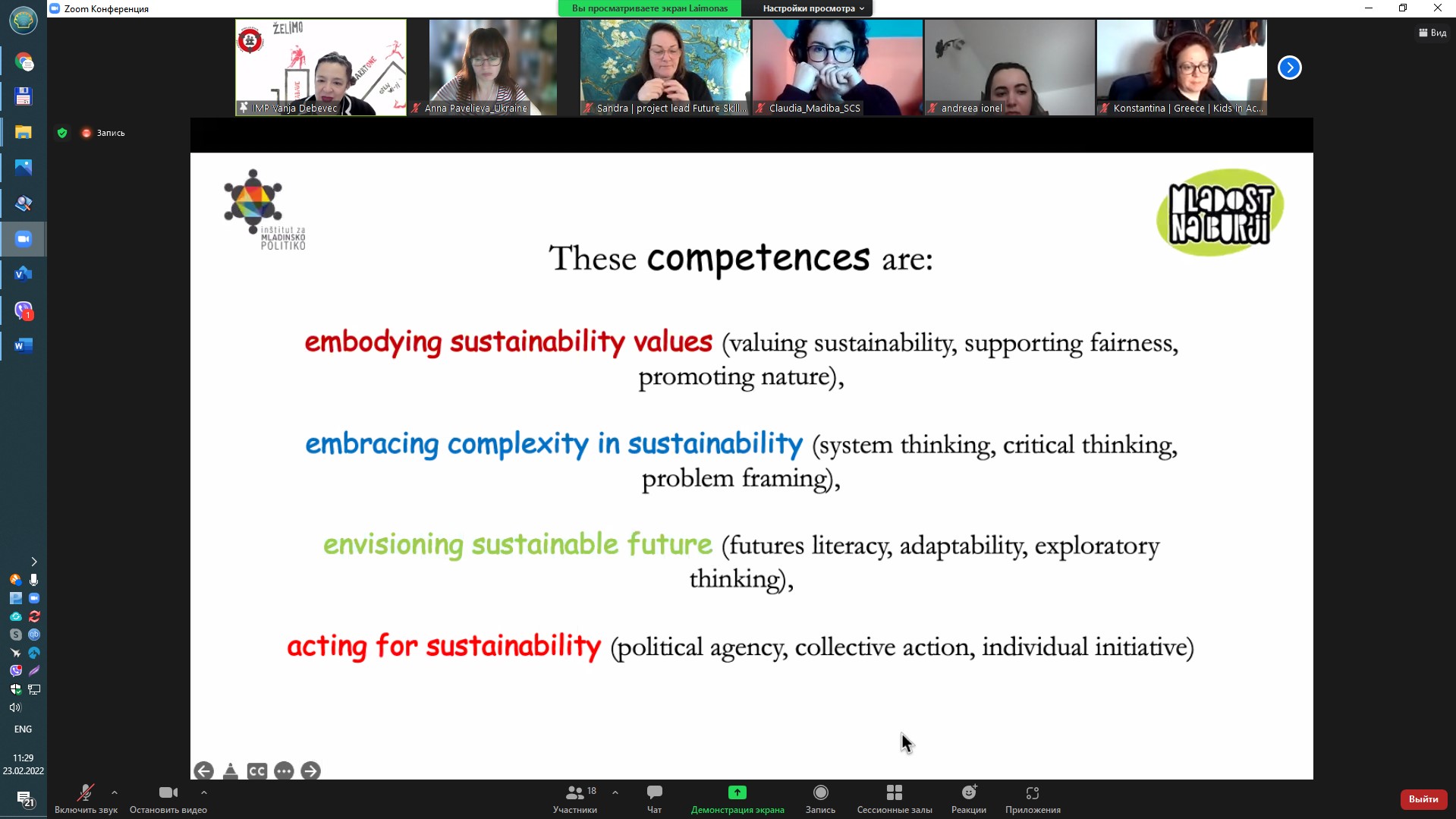
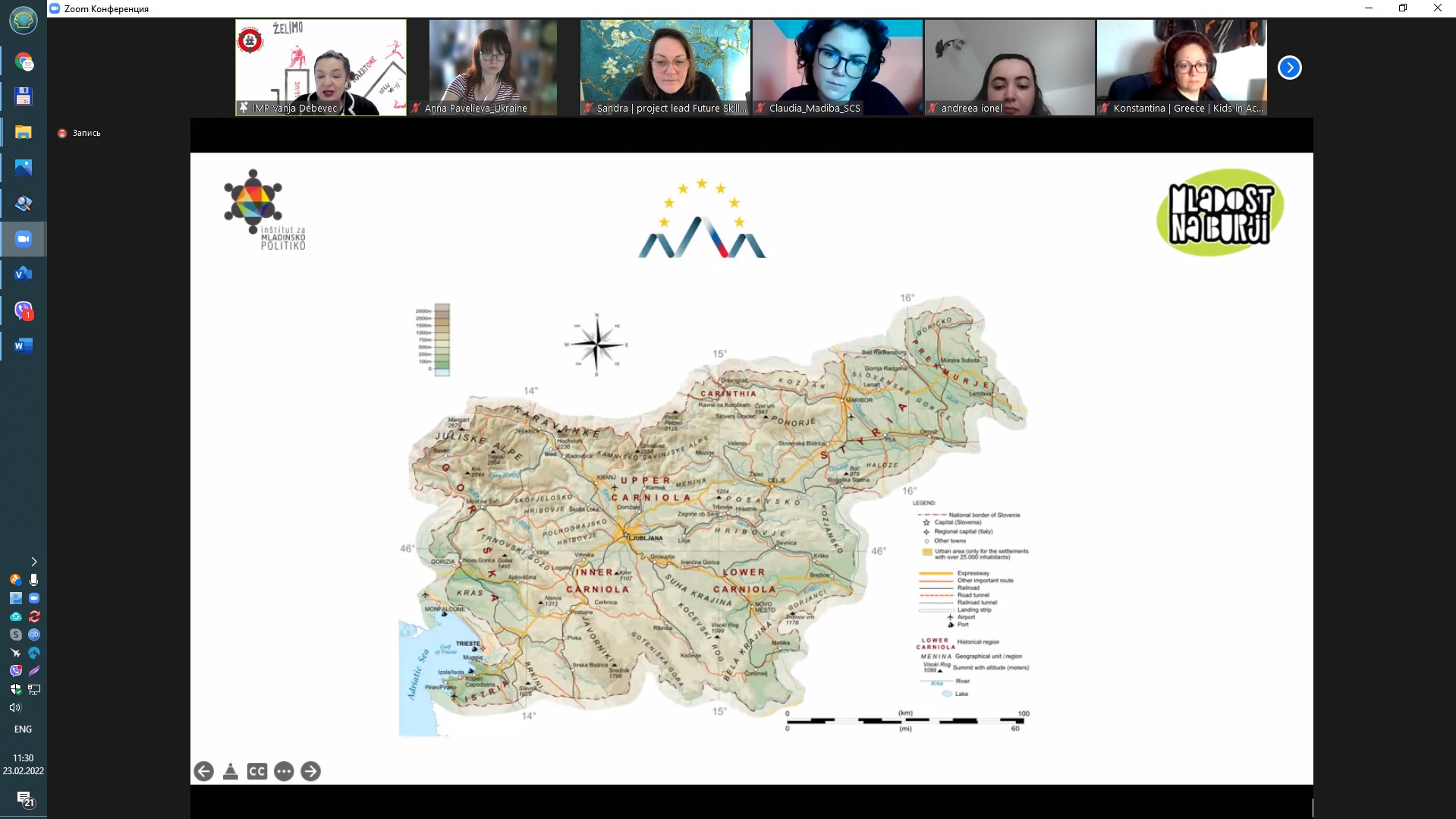
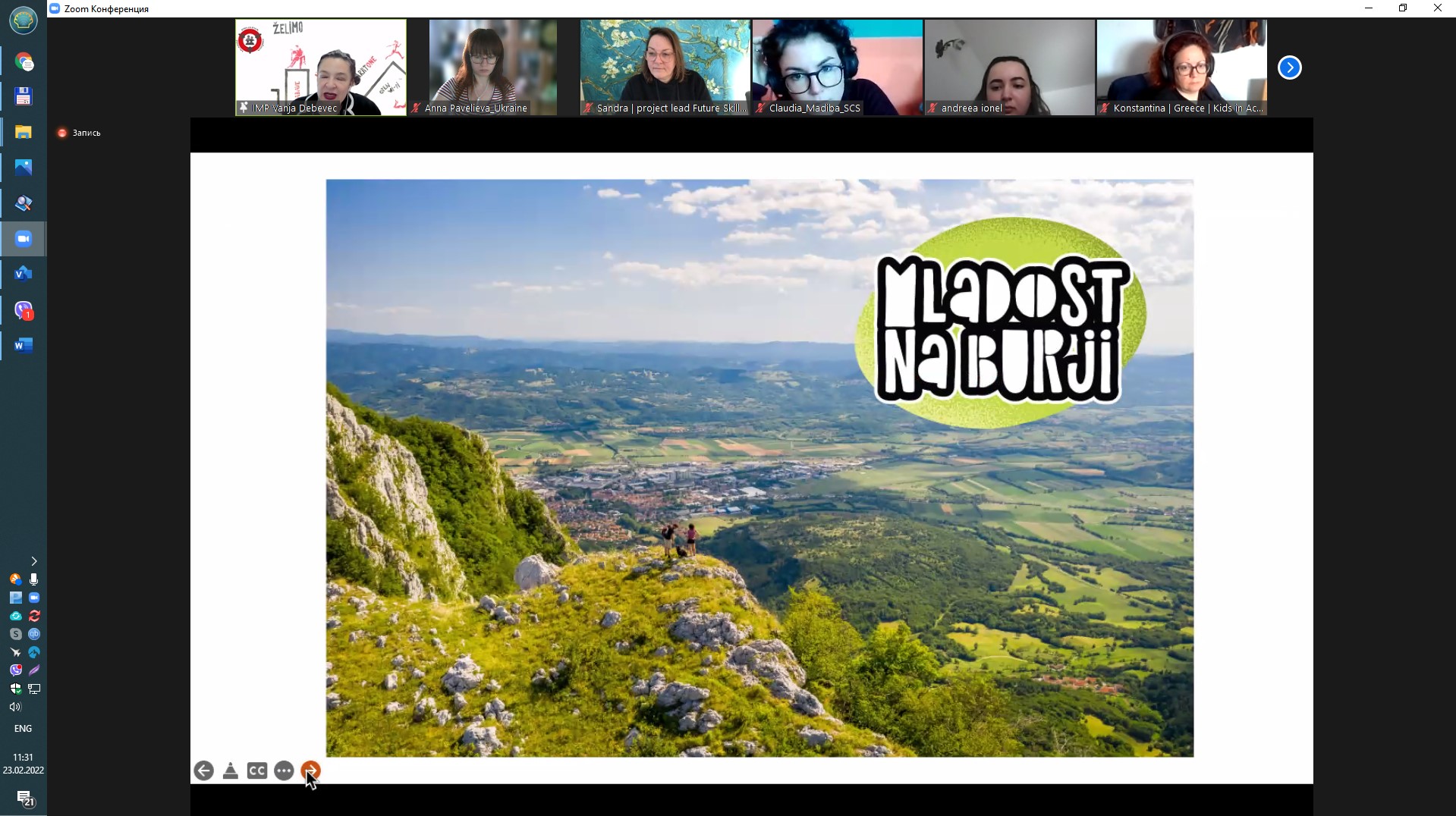
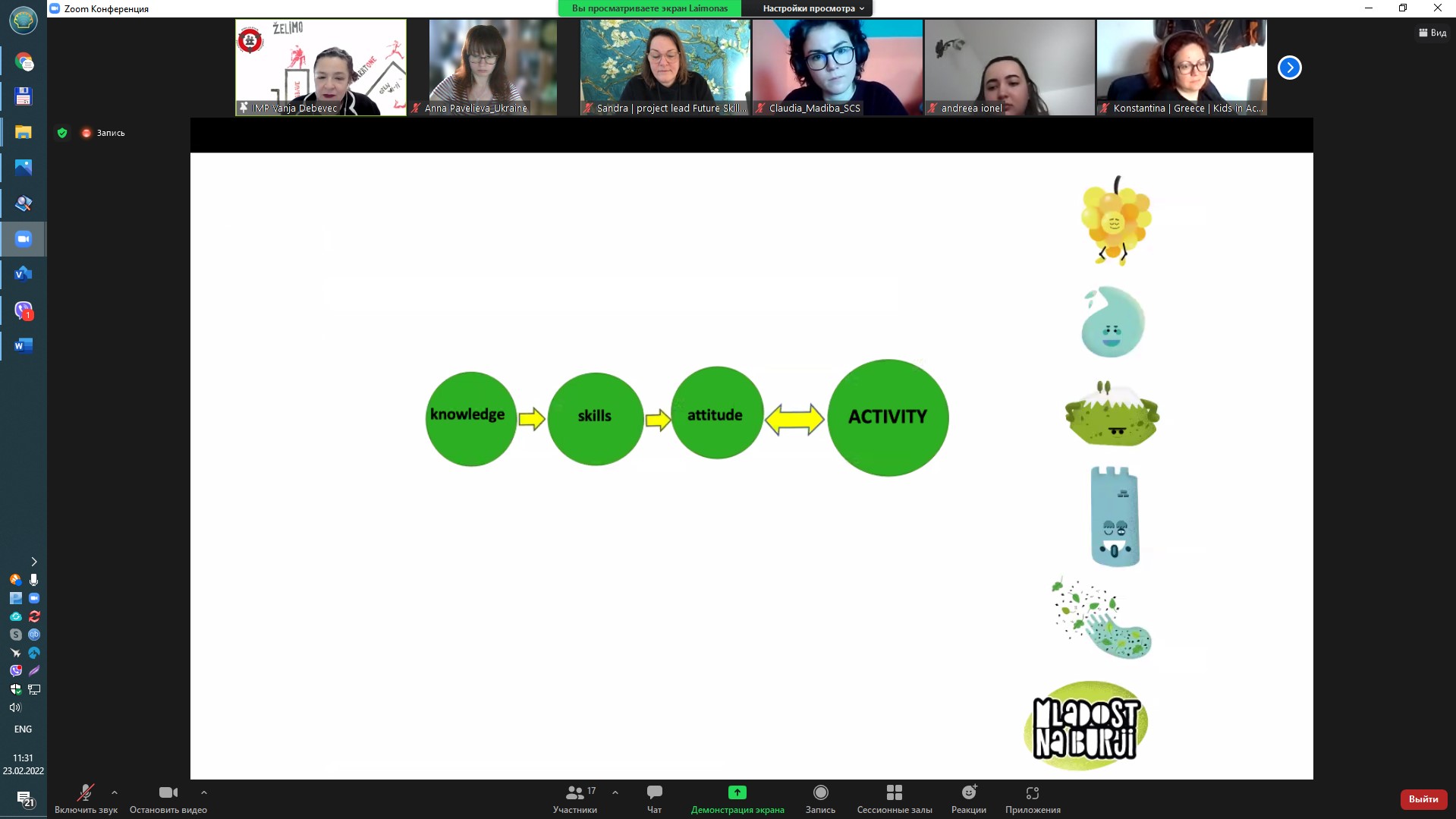
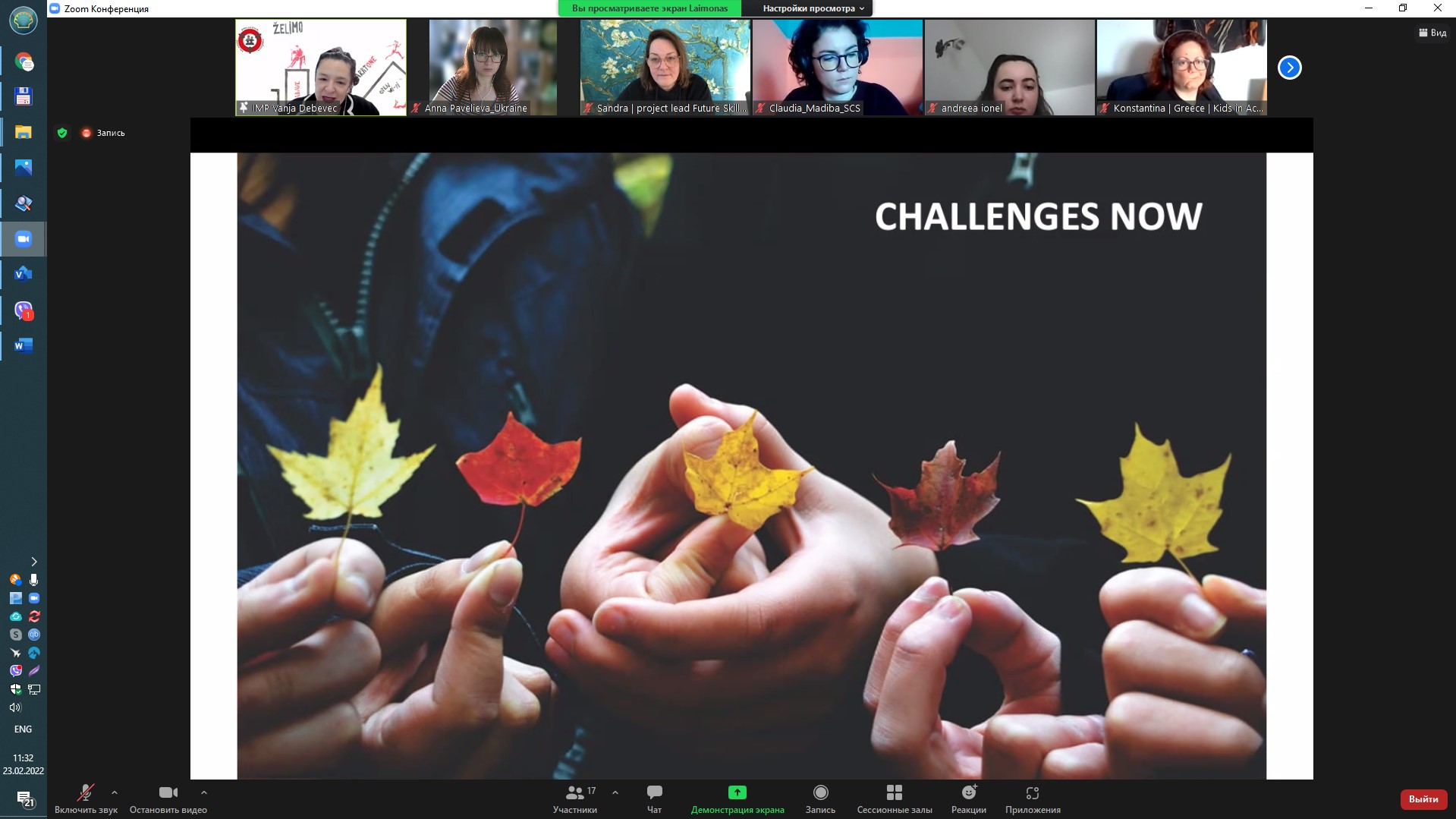
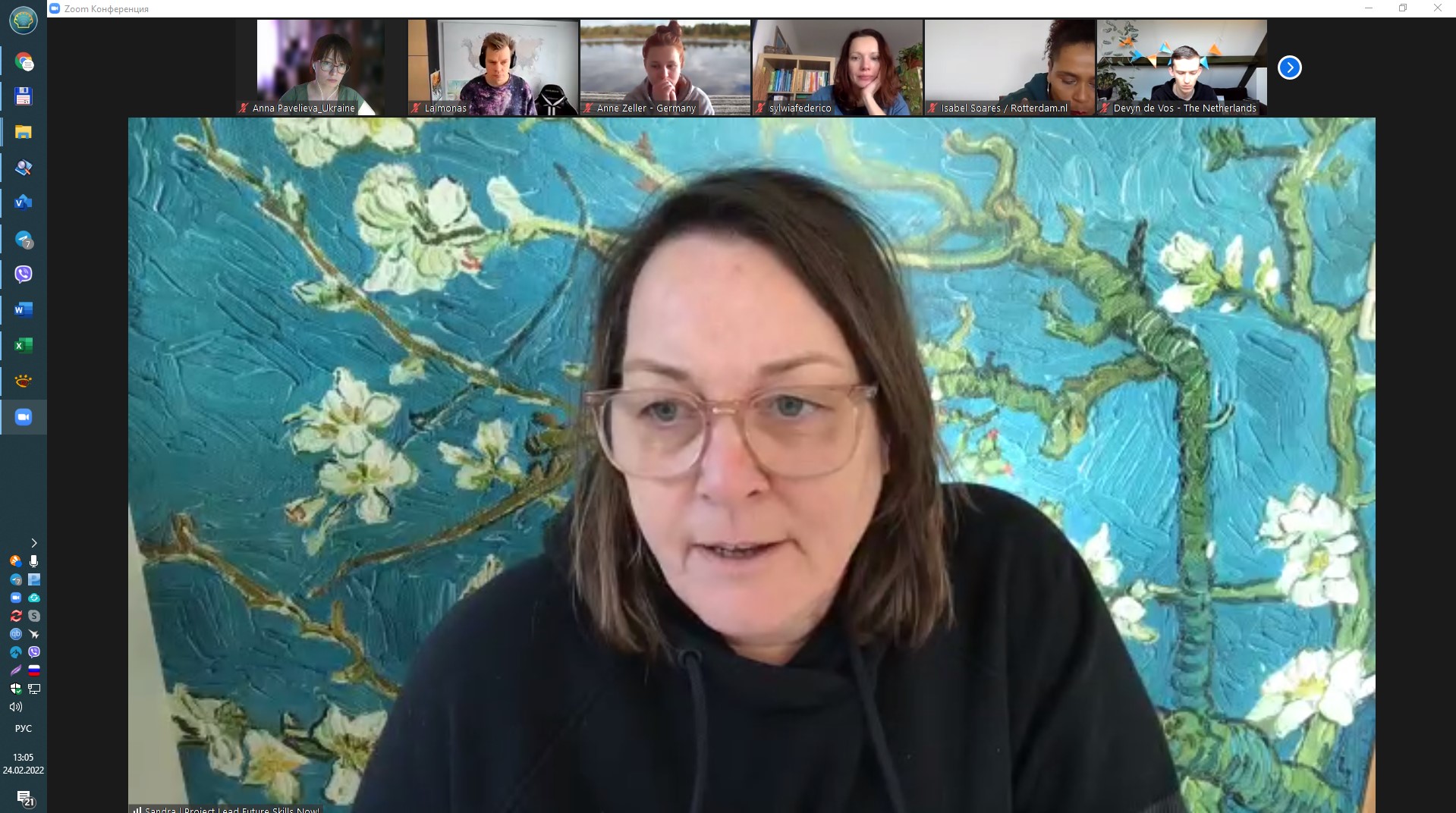
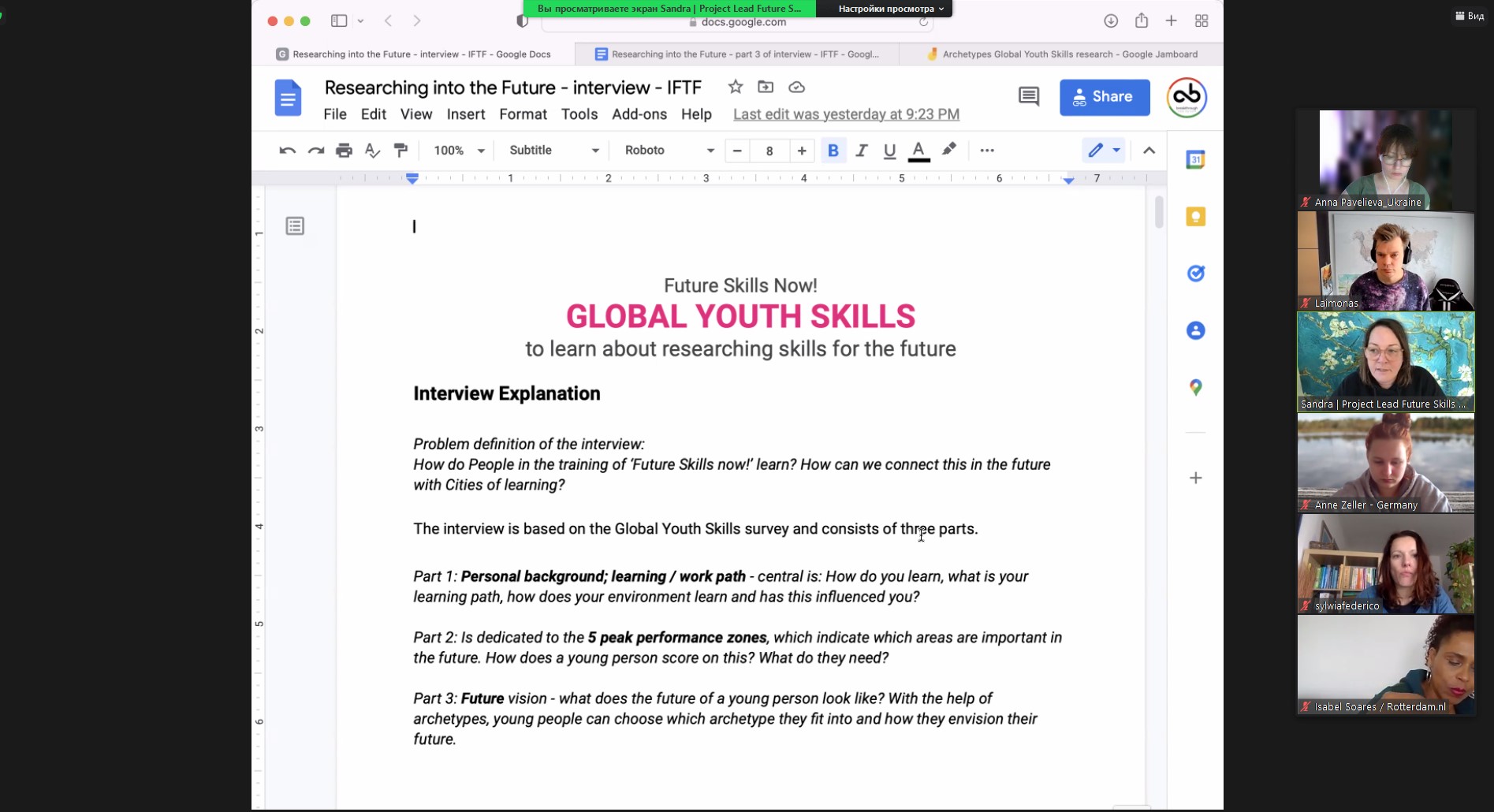
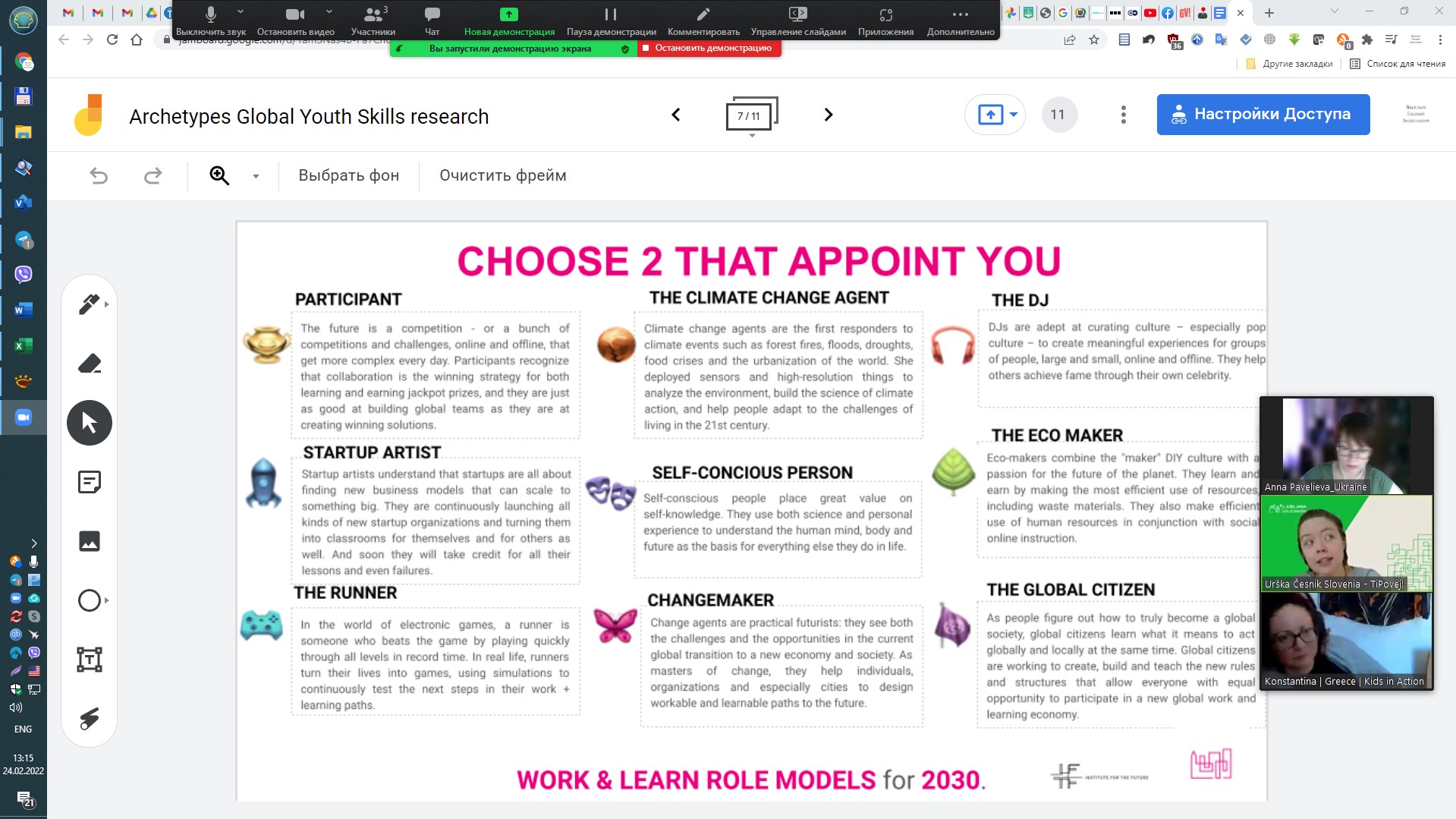
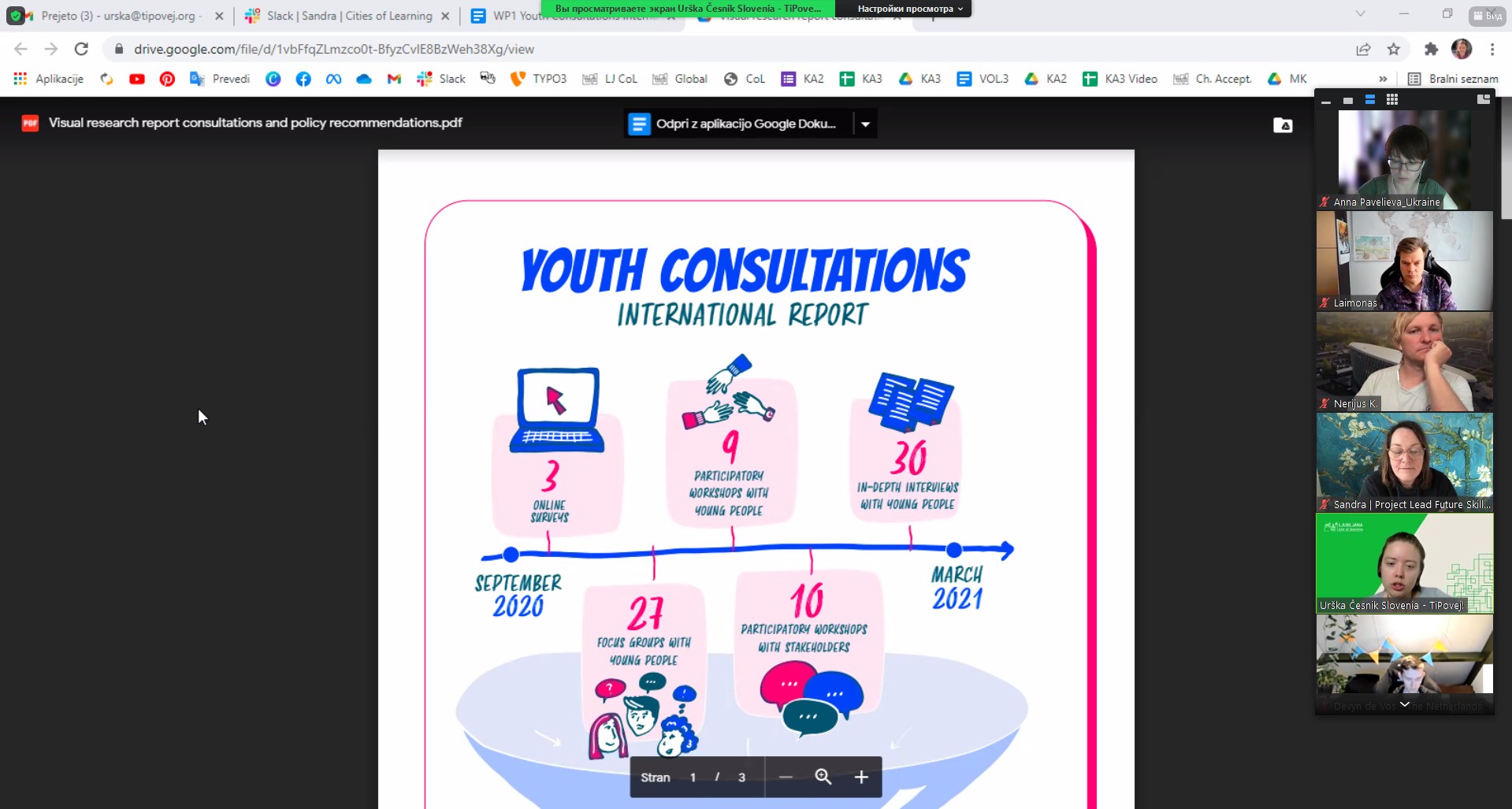
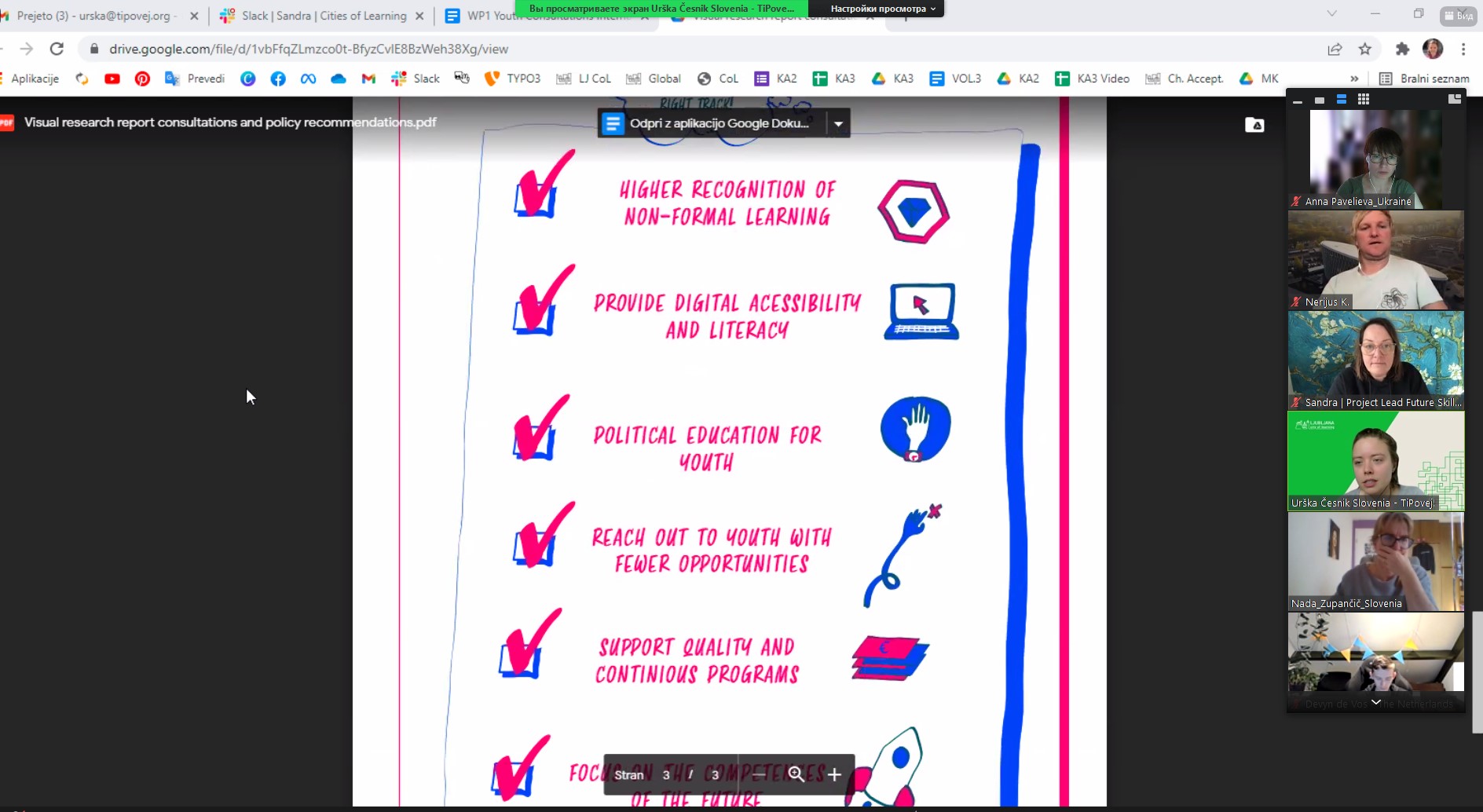
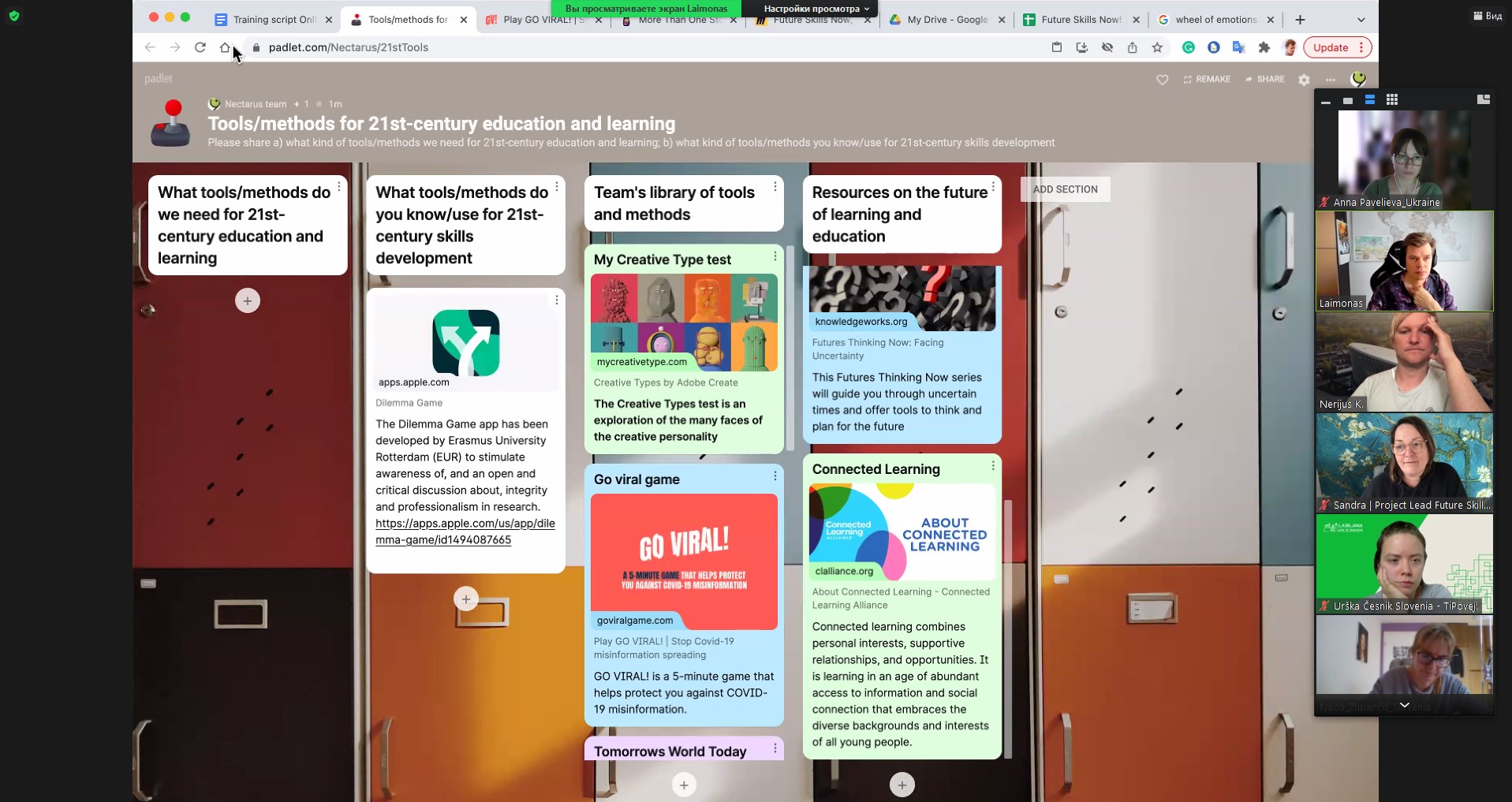
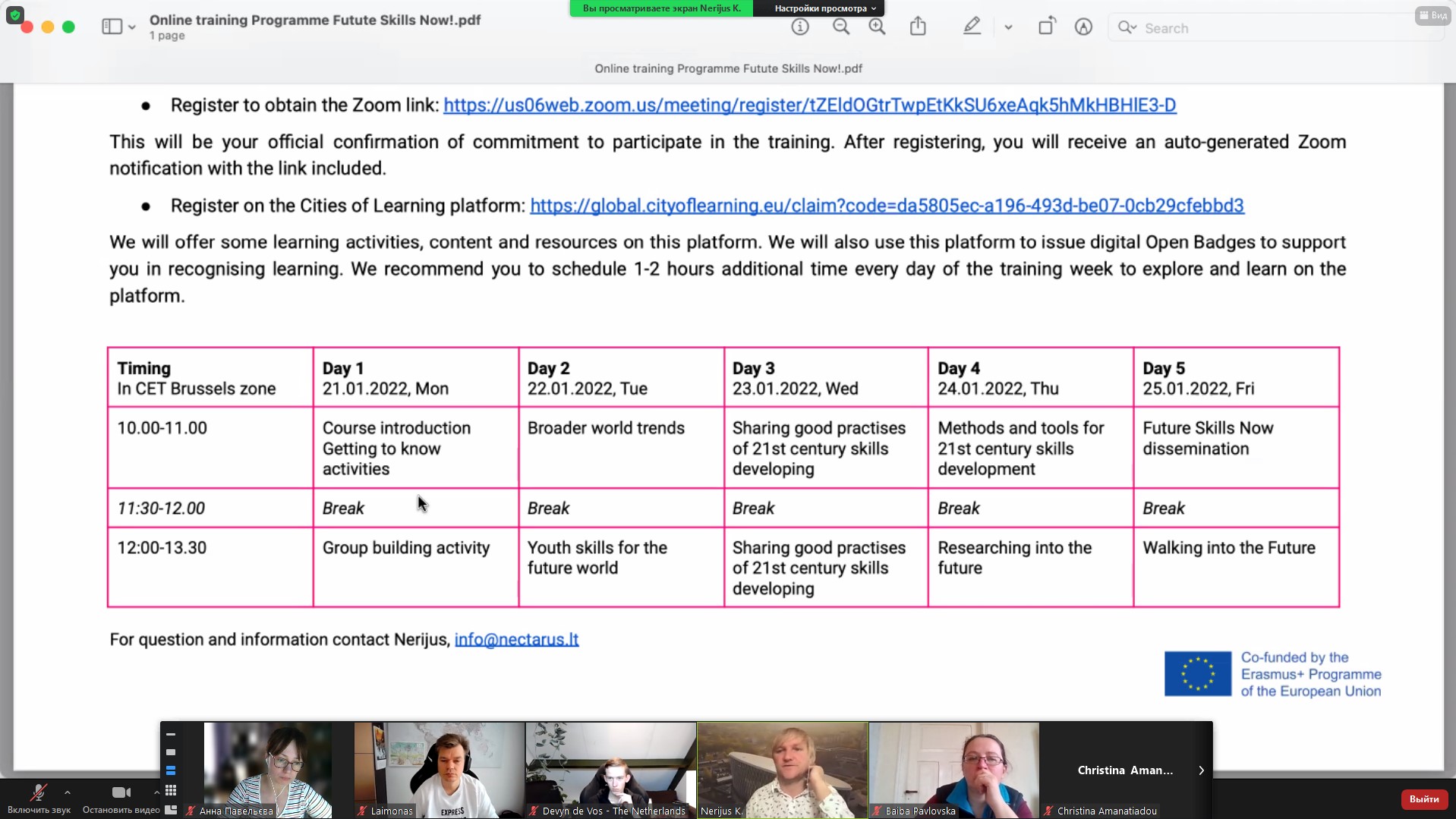
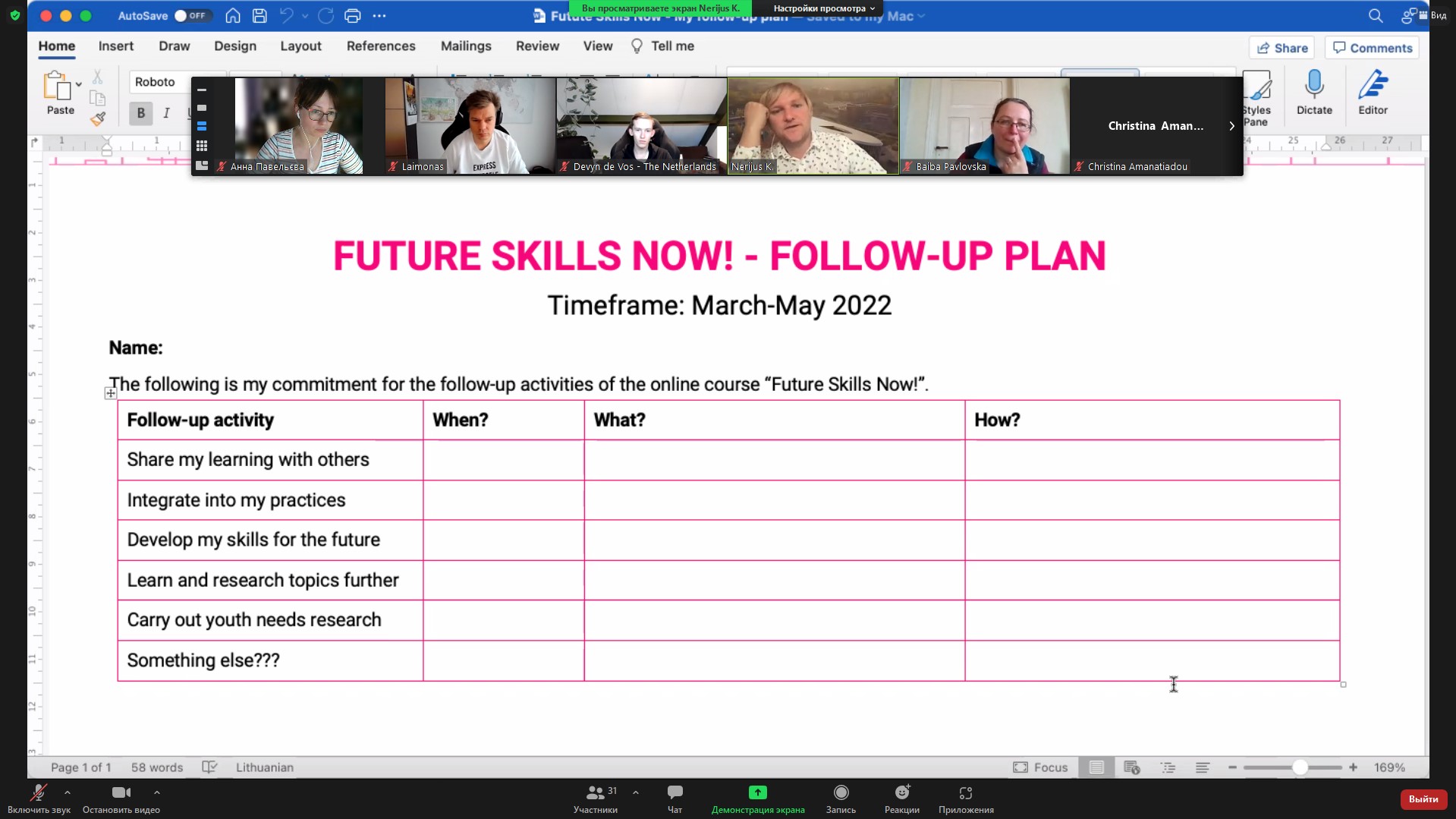
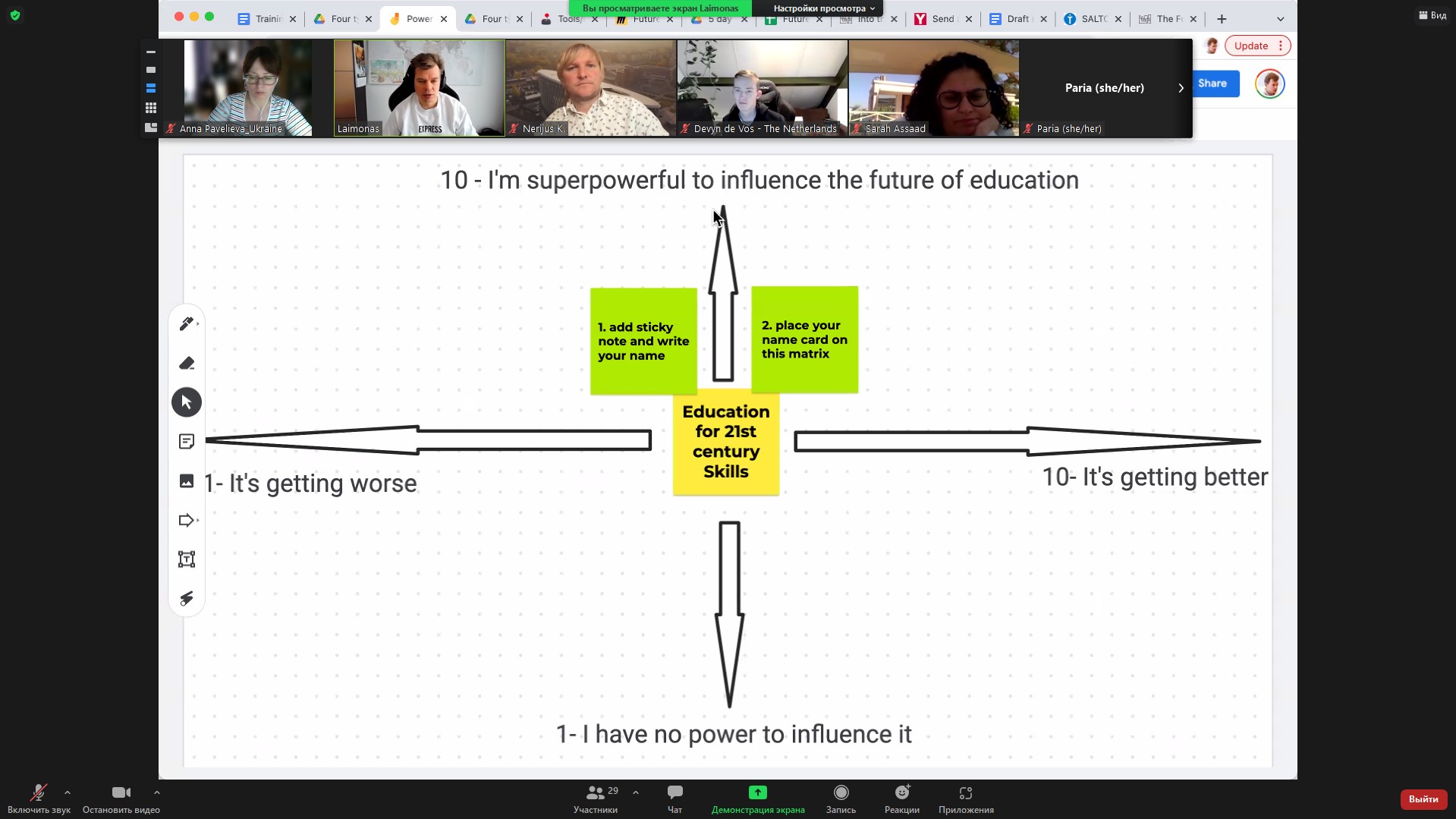
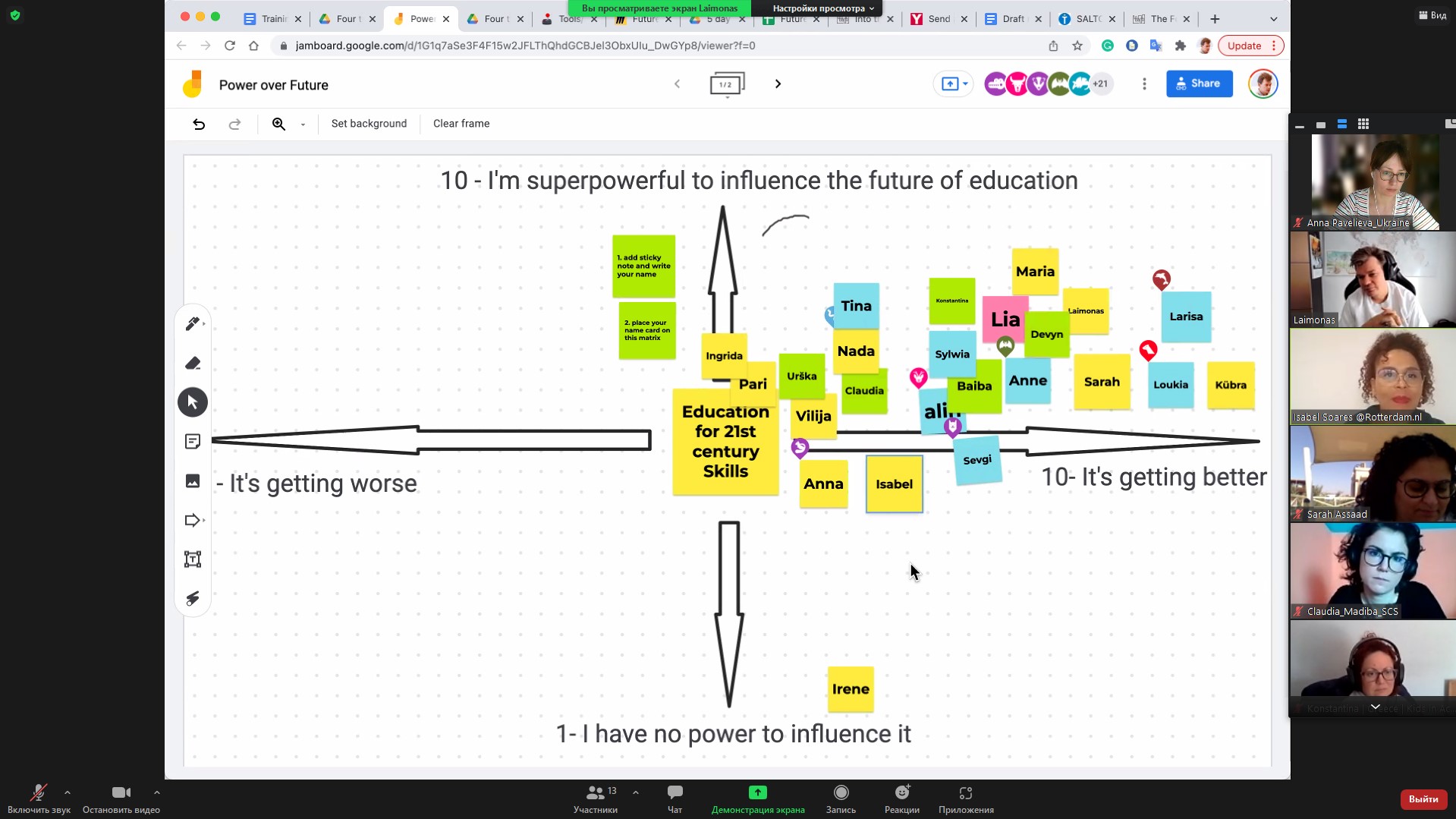
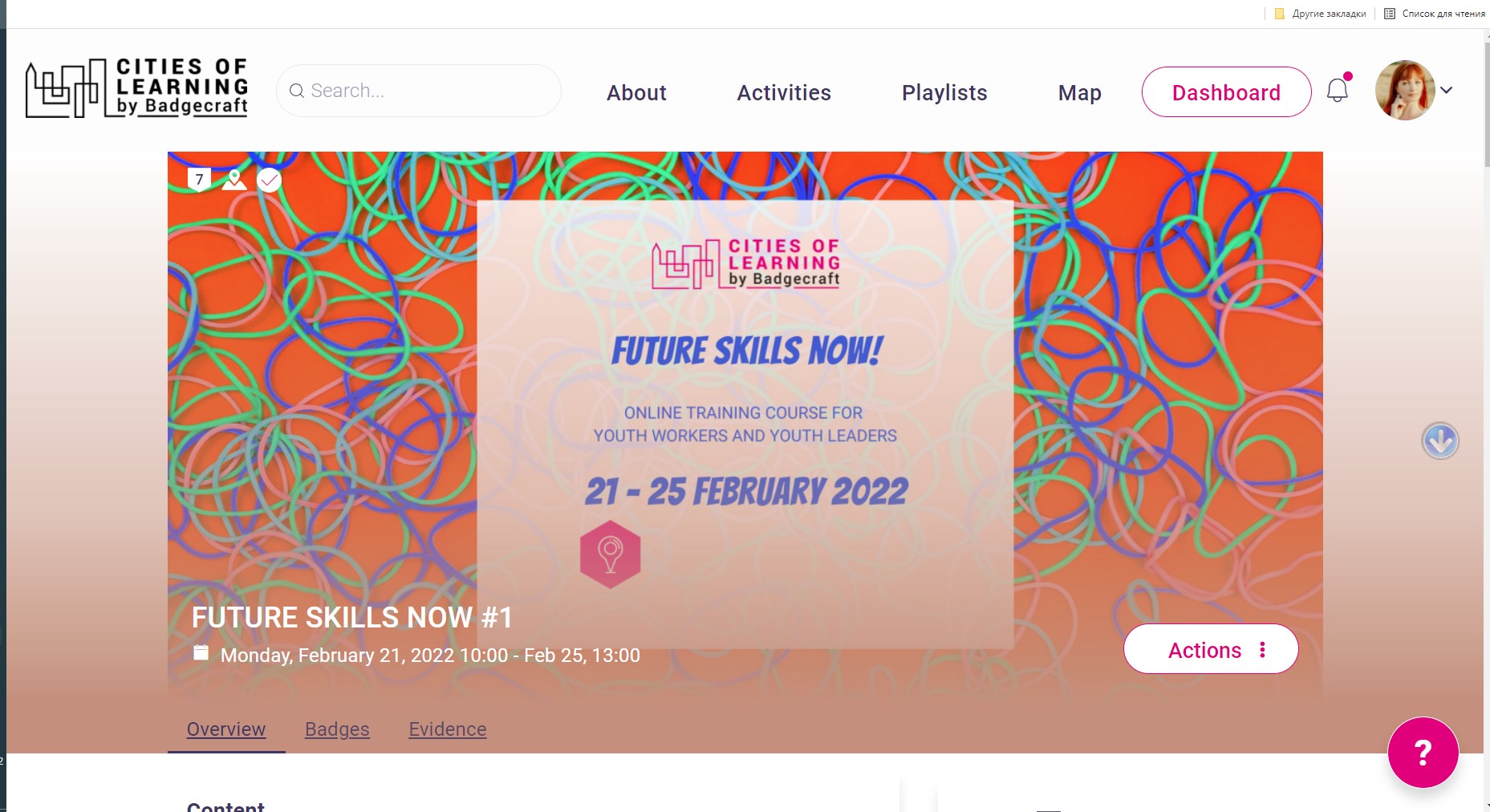
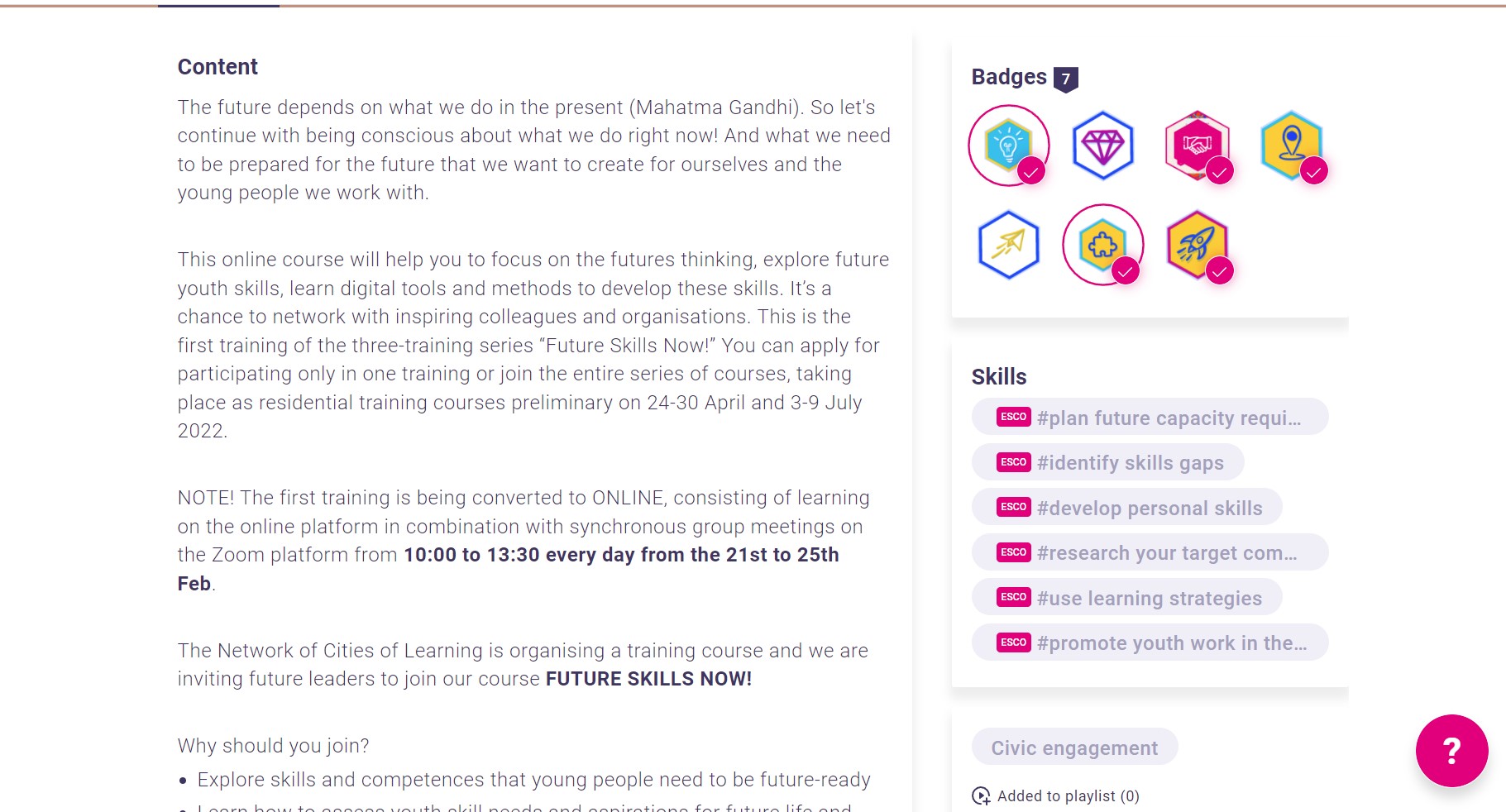
Within the framework of the course “Future Skills Now”, listeners deliberated on skills and competencies that young people will need in 5-10 years, learned to identify the most necessary skills and competencies based on existing labor market needs and scientists’ forecasts, learned practical methods of mastering the skills needed by young people in XXI century. Participants received individual practical tasks and prepared collective projects, worked in groups. In particular, they discussed scientific videos and articles on the likely development of mankind and technology in 5, 10, 15-20 years, labor market needs in the near and distant future as well as the possibility of adapting curricula and courses to these needs, considered 56 basic skills needed by people in the 21st century.
Coaches from Lithuania Laimonas Ragauskas, Nerijus Kriauciunas and Sandra Zoomers explained to the participants how to identify and develop the necessary for the youth skills and competencies in certain educational programs and specialties, along with introducing the game Mega Trend Cards, created in 2020, which develops critical and creative thinking, logical connections and teaches to predict the needs of the future. This game, which consists of 56 cards and instructions, can be downloaded and printed for free in English. The developers recommend it for use in schools, universities as well as youth and educational organizations of all forms and levels.
“It was quite an unusual training, because such projects usually address educational trends and problems of the present, while the course “Future Skills Now” was primarily aimed at predicting educational trends and problems of the future.
The training lasted from 21 to 25 February – the first 3 days participants discussed purely the project, and the last 2 days – 24 and 25 February, were almost entirely devoted to the war in Ukraine. Representatives of youth and educational organizations from around the world asked me what exactly is happening in Ukraine, since there is a lot of contradictory data on the internet on how to help Ukrainians. I shared with them the NBU account to help the Armed Forces of Ukraine and contacts of volunteer organizations working with volunteers from abroad, as the training participants were interested in how exactly their organizations can help Ukraine.
Later, after the project, some participants from Romania, Hungary and Poland wrote to me that they are already collecting humanitarian aid, which will be sent to Ukraine in the nearest future,” – told Candidate of Philological Sciences, Associate Professor of the Department of Germanic Philology and Translation at Poltava Polytechnic Anna Pavelieva.
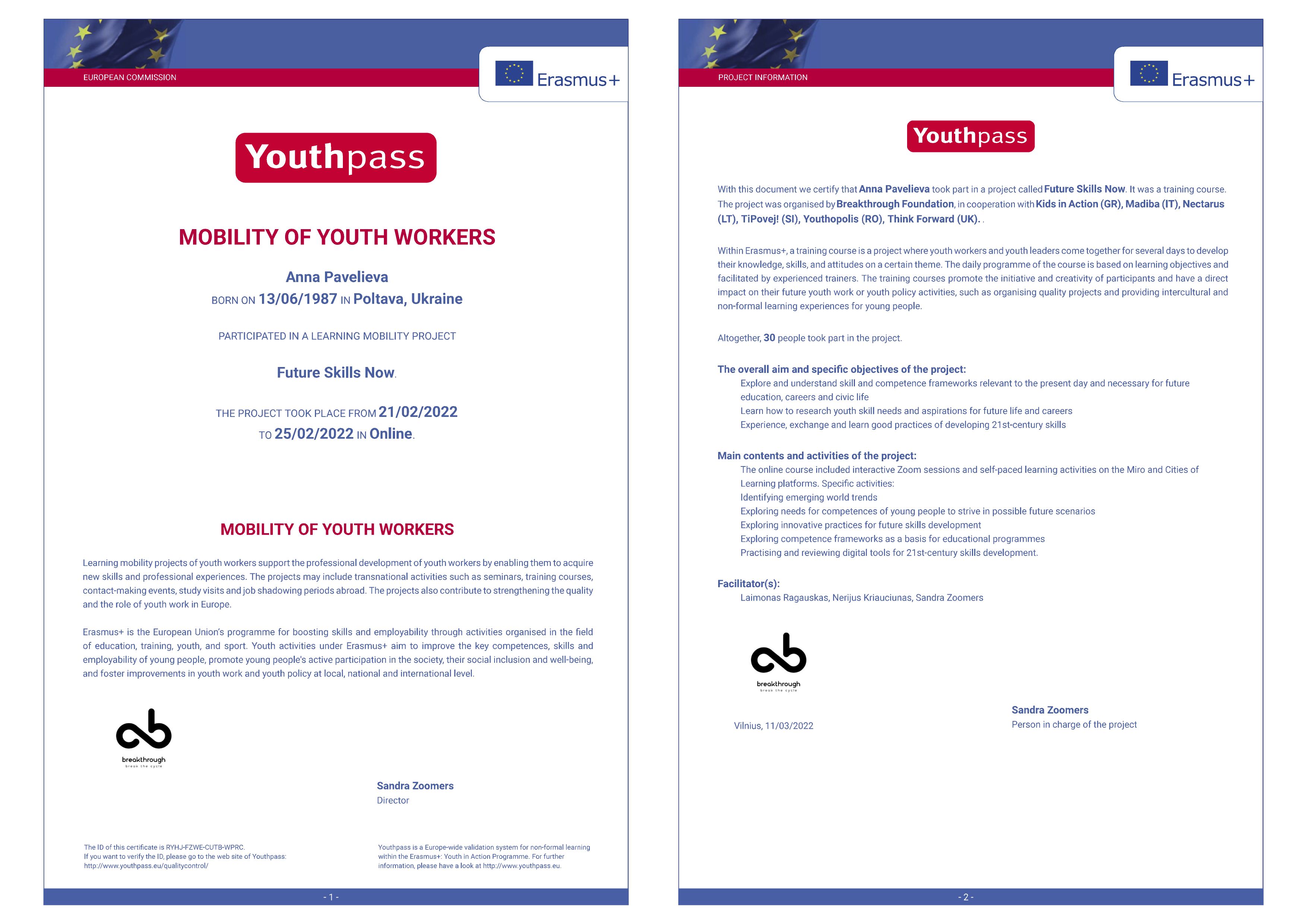
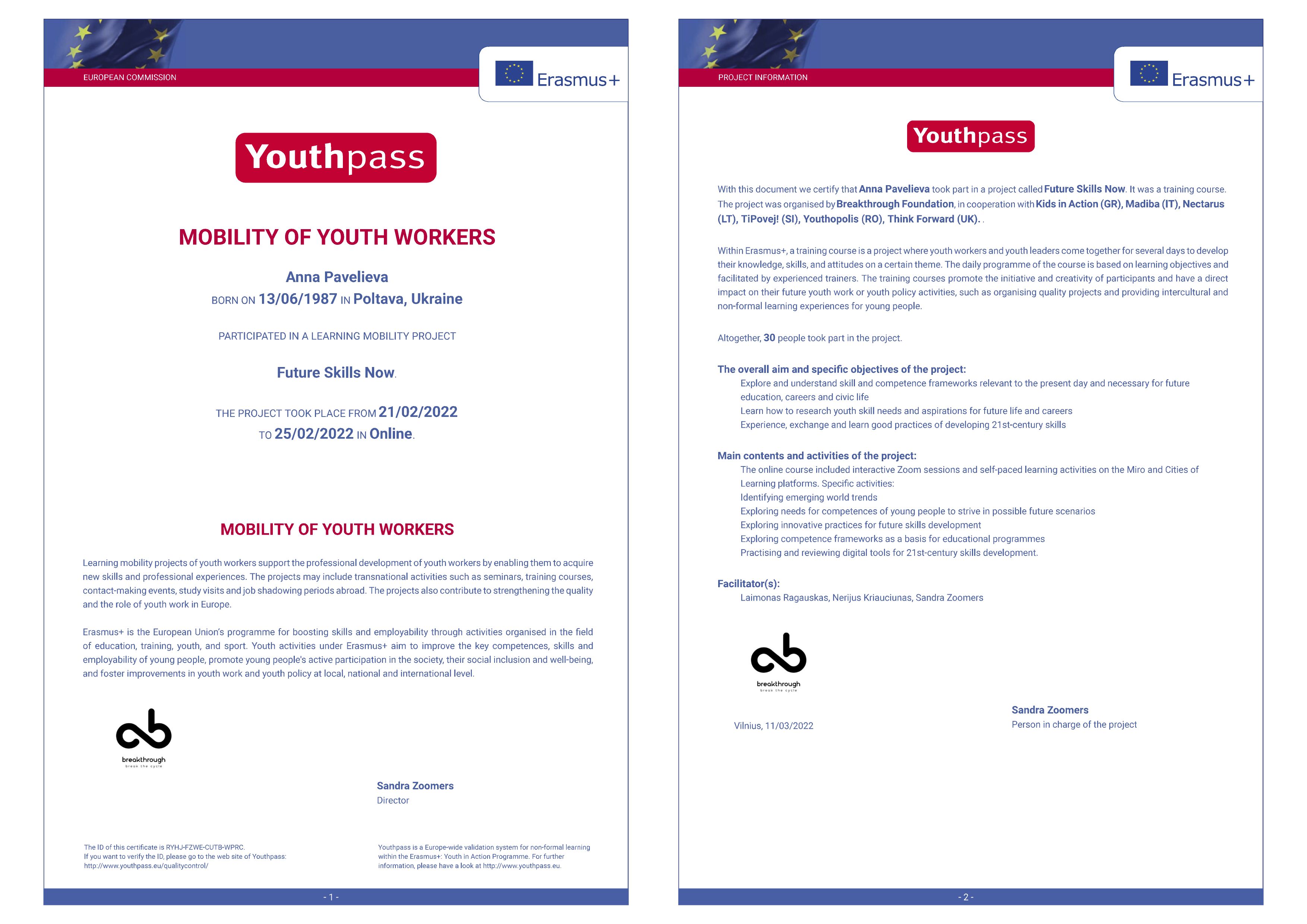
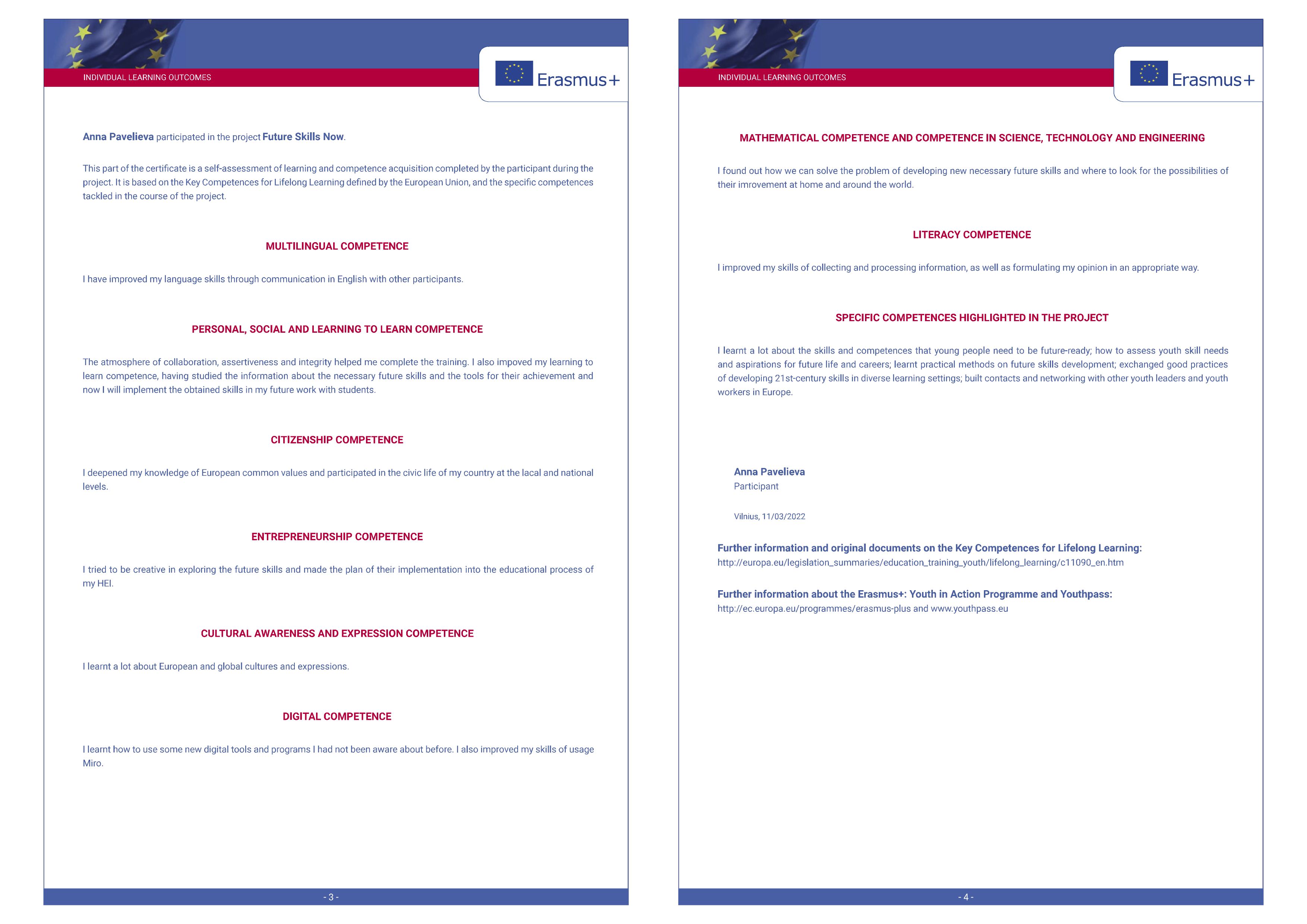
Previously, a lecturer at the Faculty of Humanities conducted training on teamwork and conflict management, and a scientist-philologist joined the online training on environmental protection under the Erasmus+ program.
Media Center of
National University “Yuri Kondratyuk Poltava Polytechnic”



